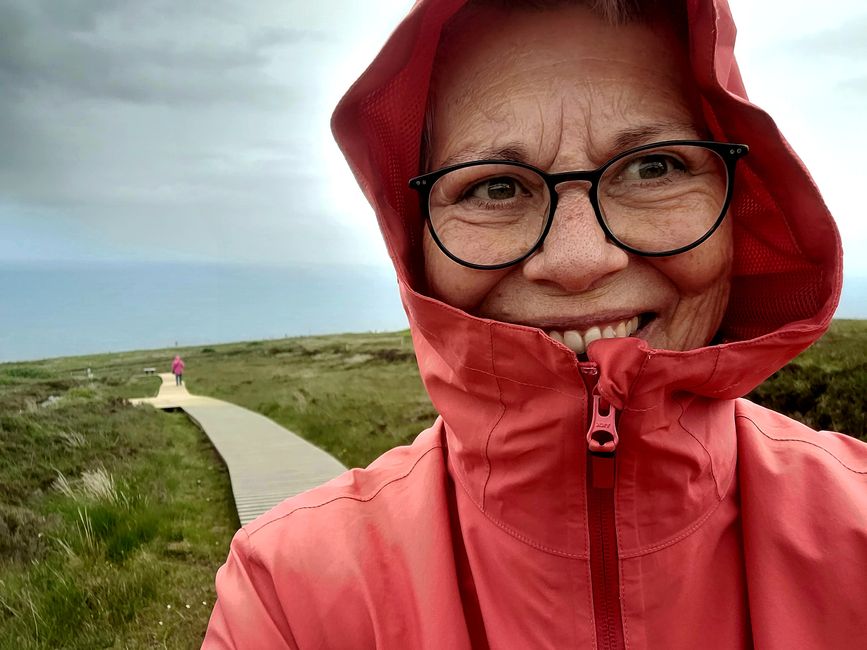
The Wild Atlantic Way - eine Reise entlang der irischen Westküste
vakantio.de/the-wild-atlantic-way-die-irische-westkuste
With the Ferry to Northern Ireland - Giants Causeway and Dunluce Castle
Pubblicato: 11.01.2023
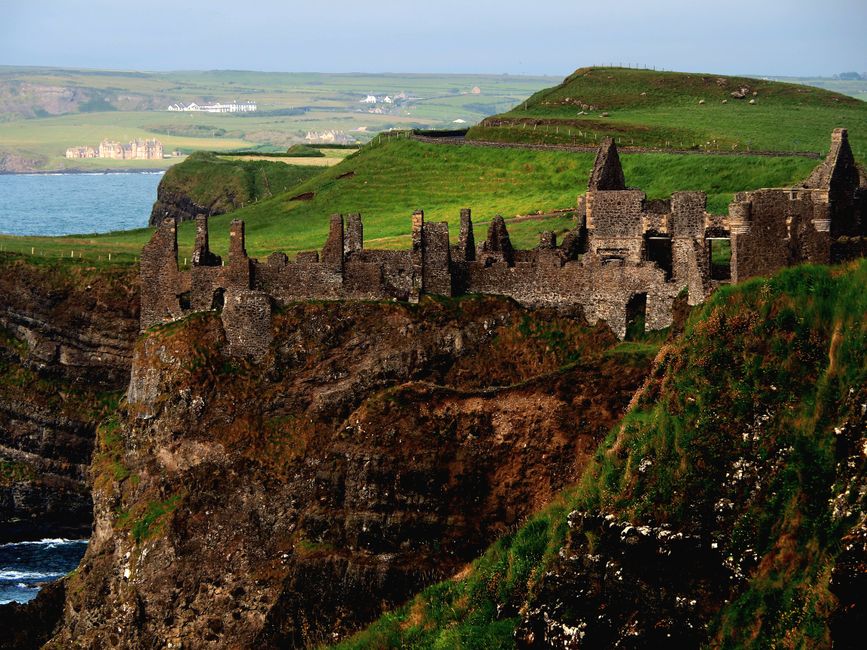
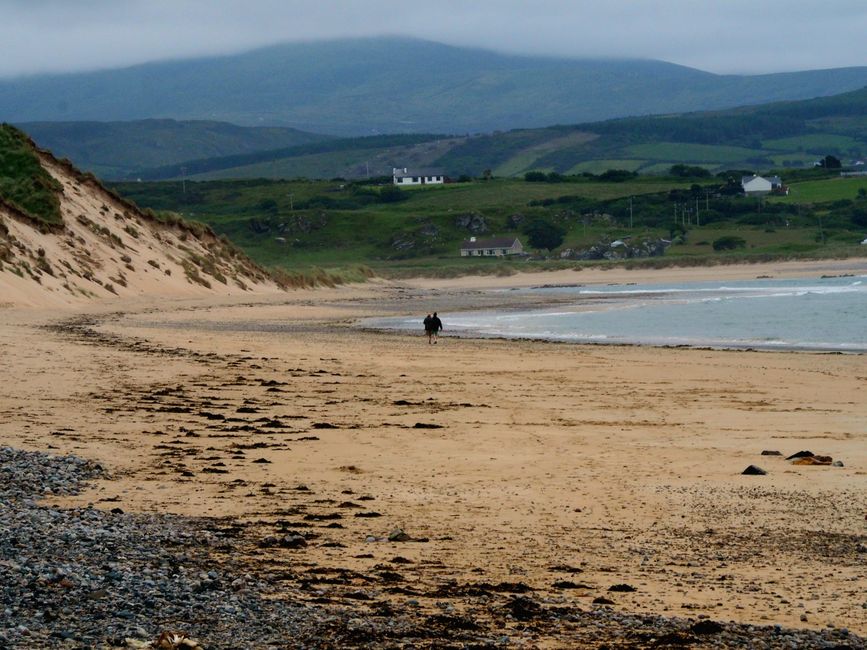
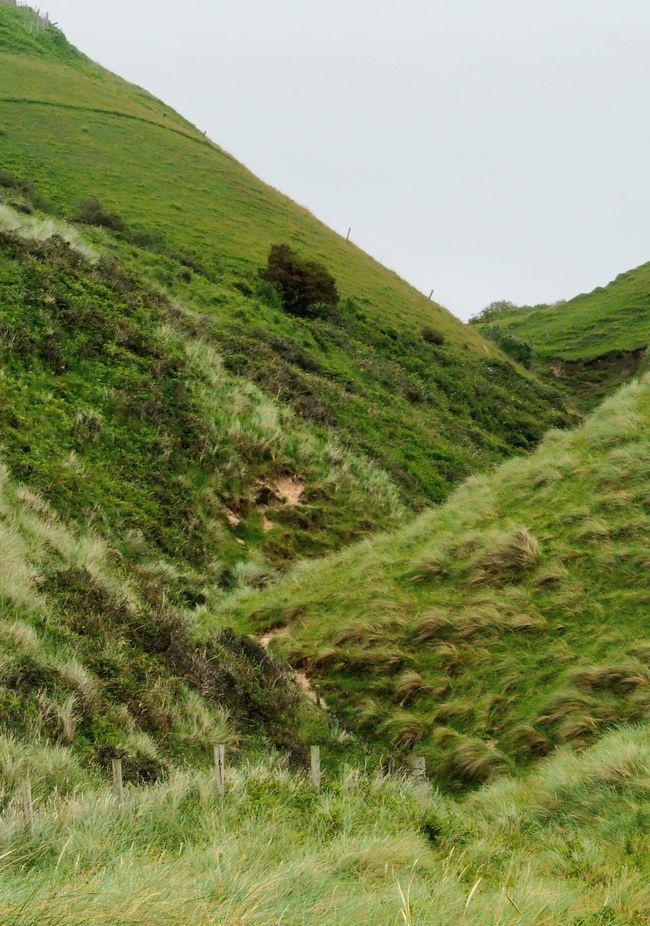
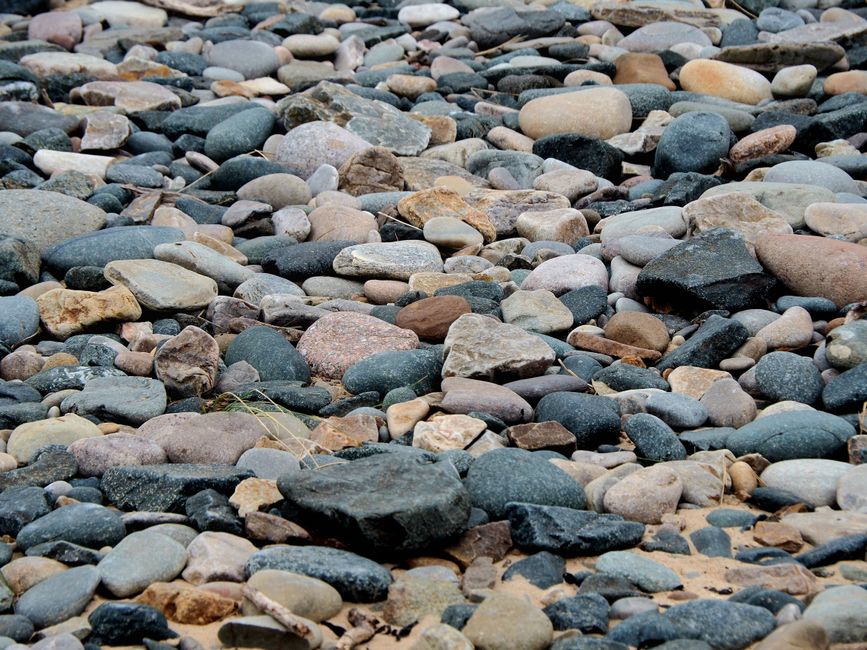
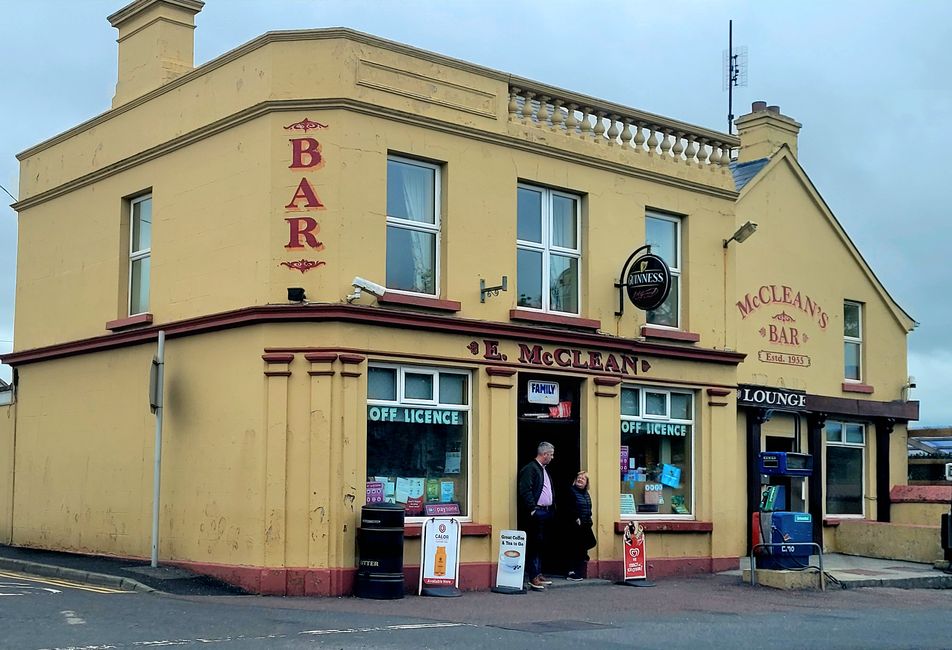
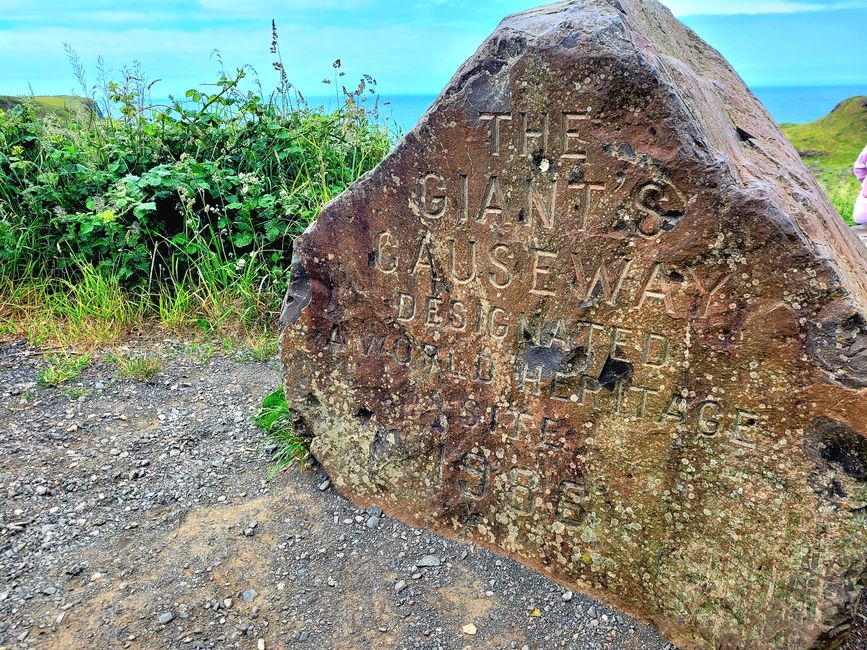
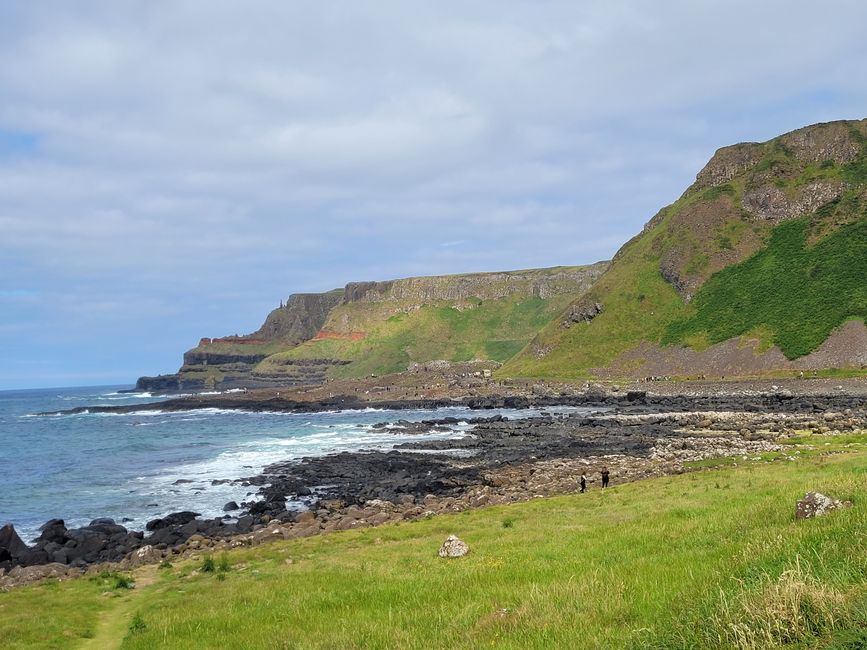
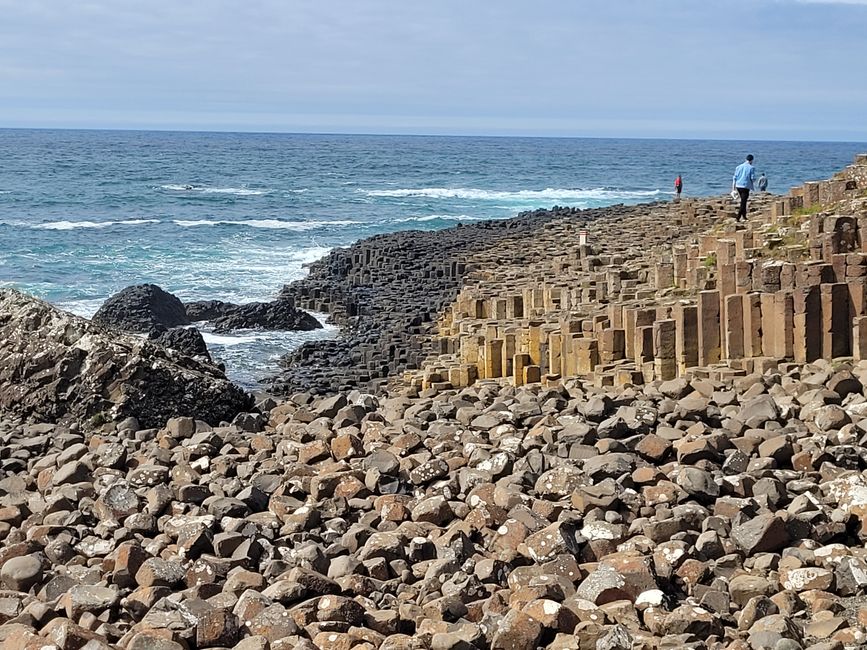
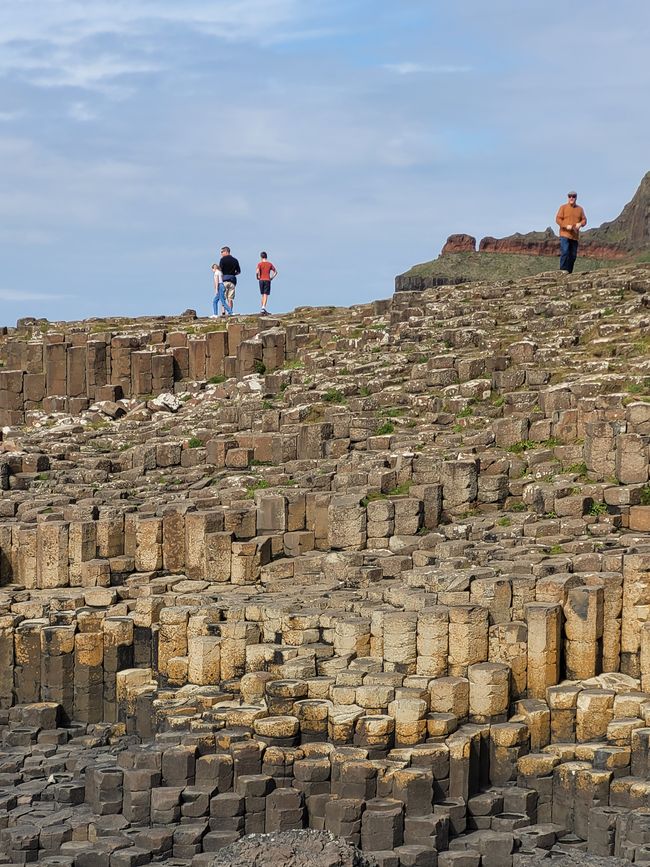
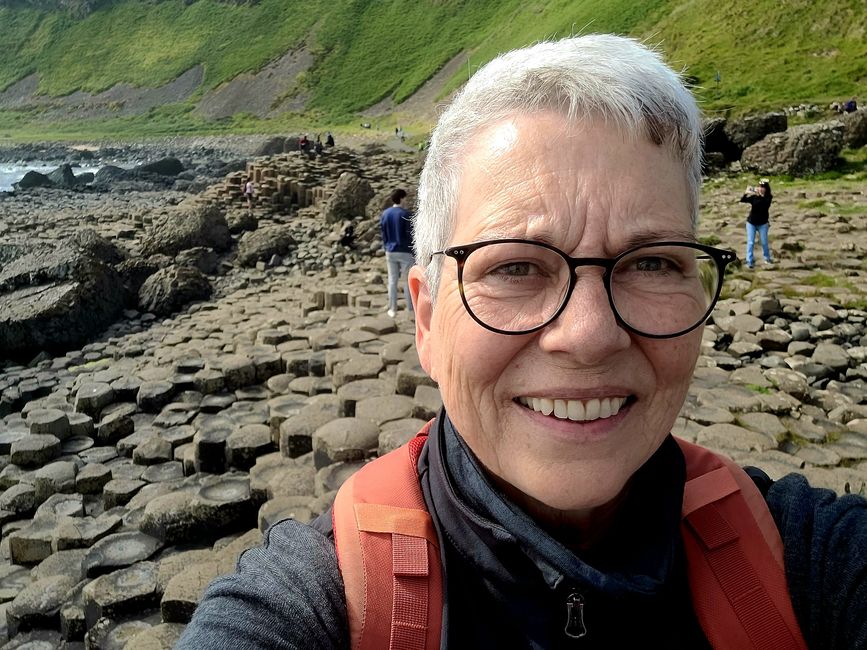
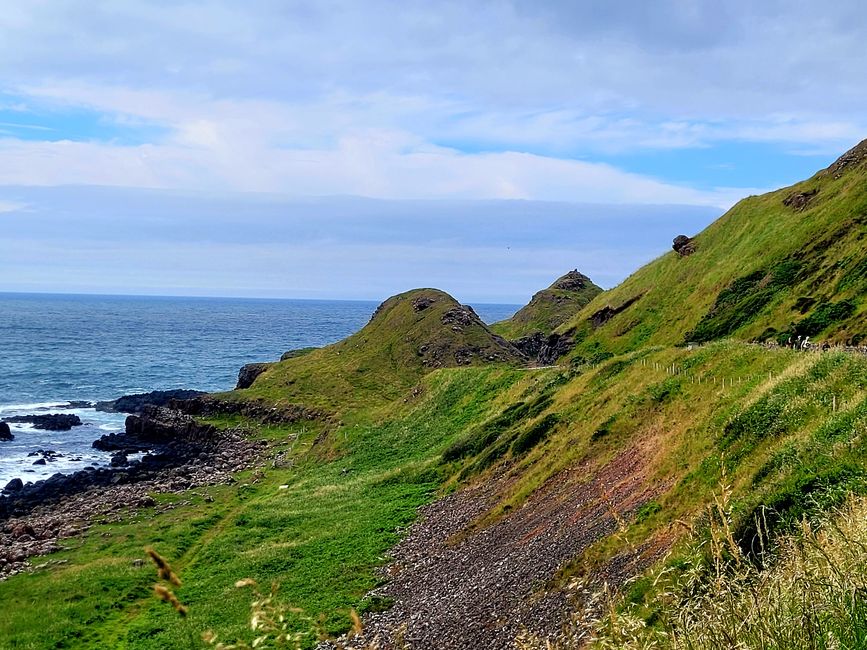
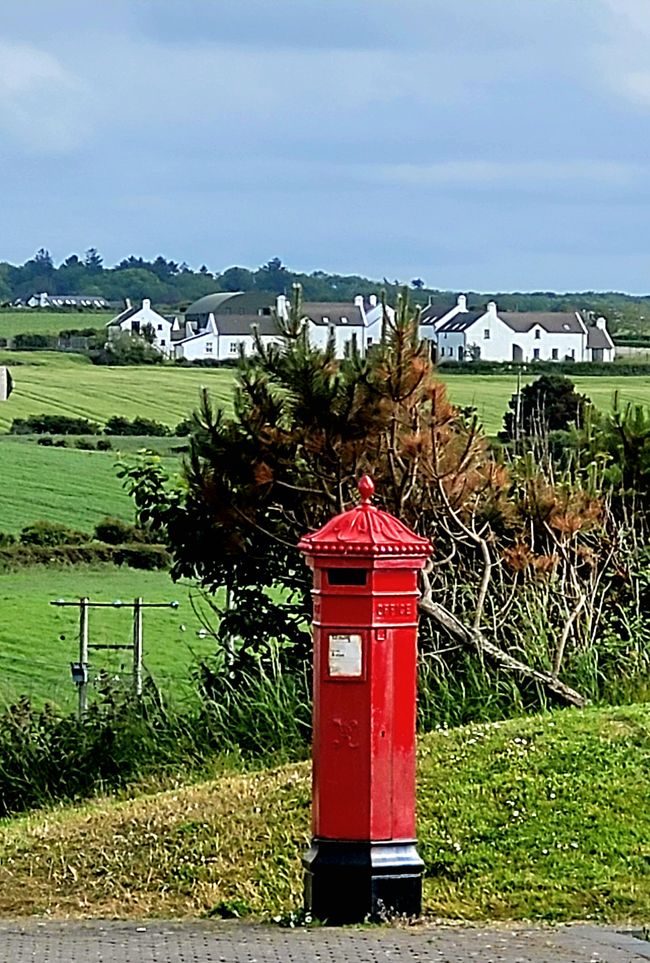
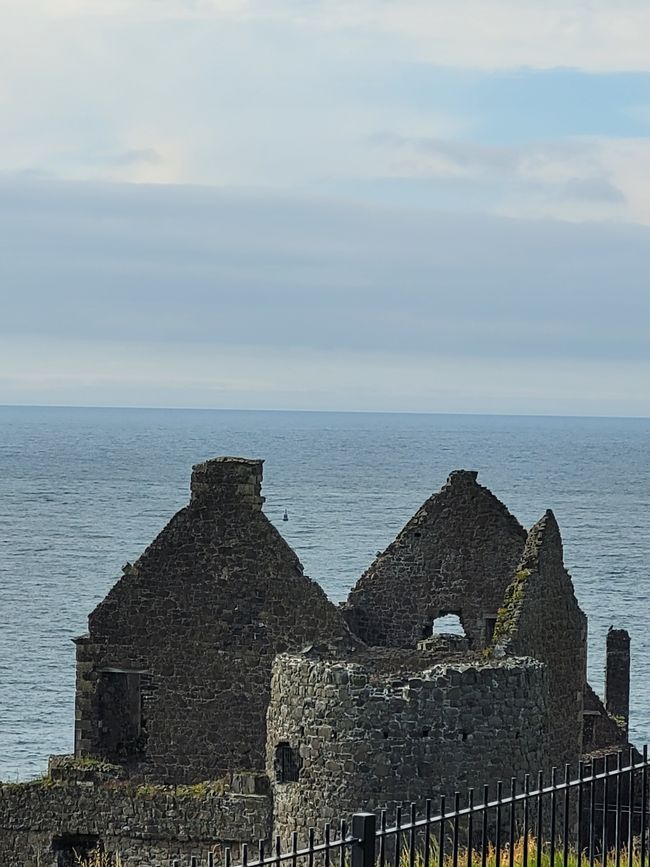
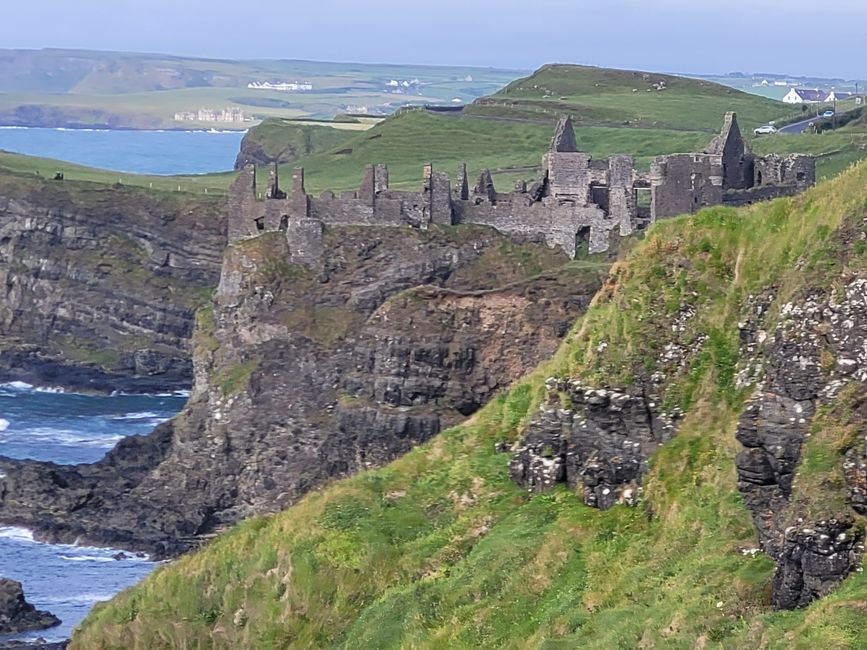
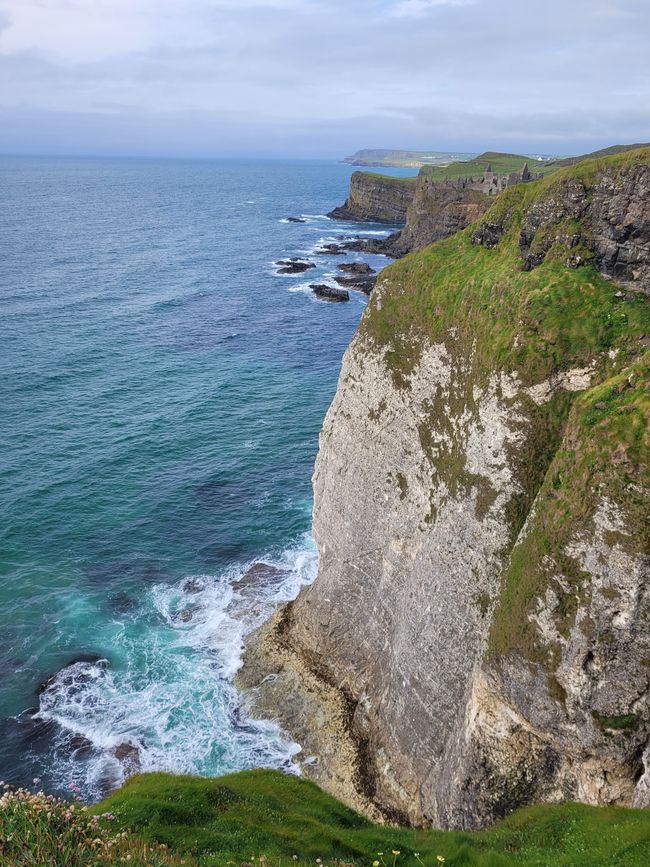
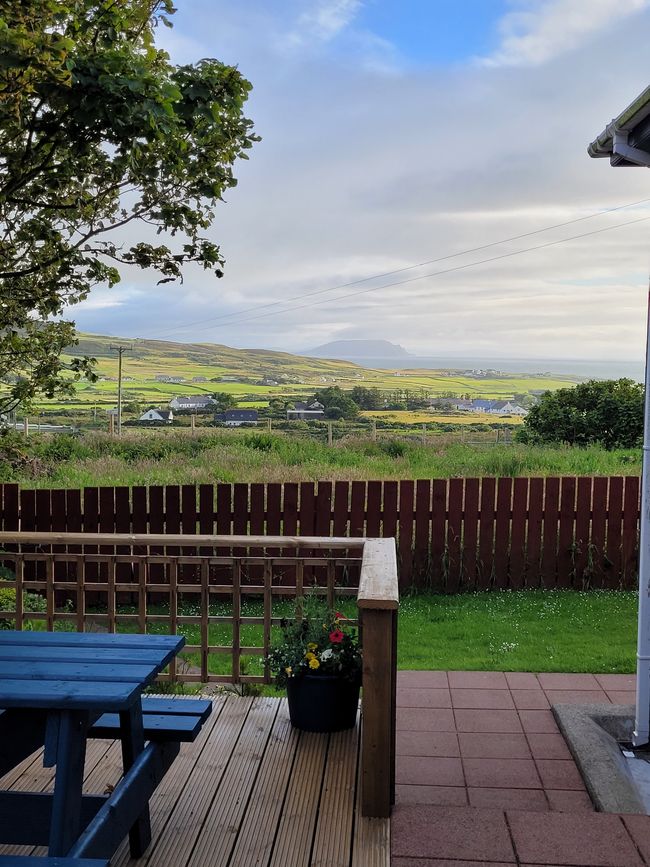
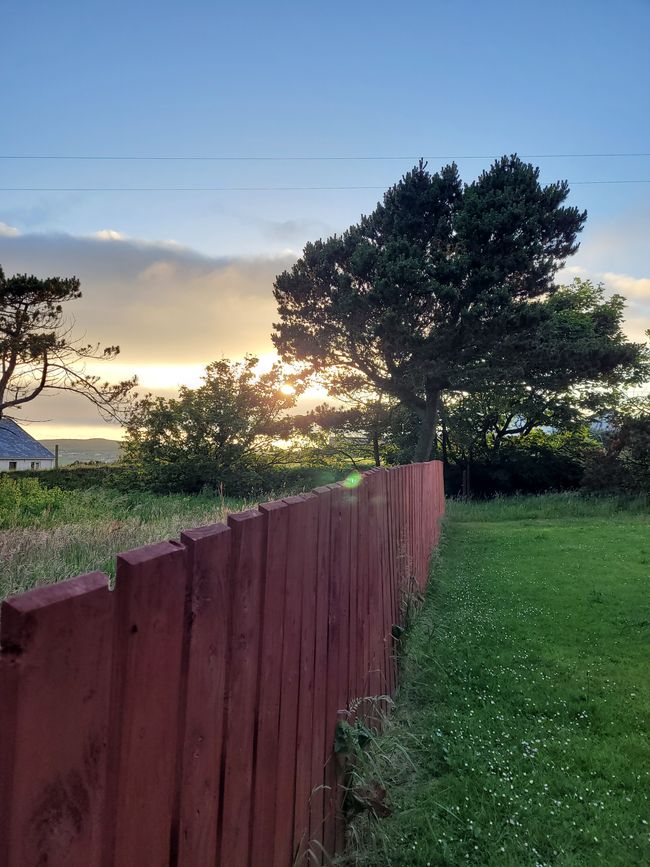
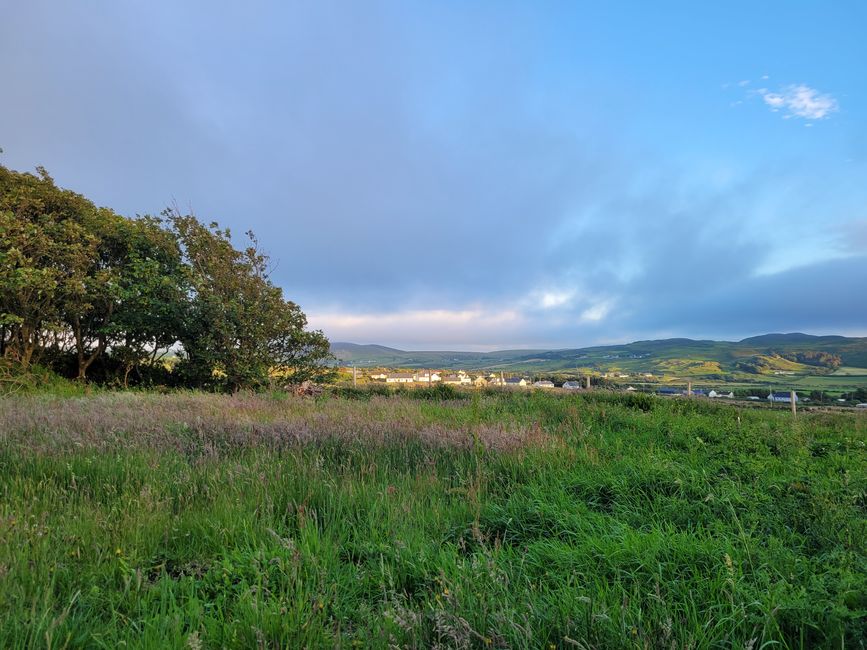
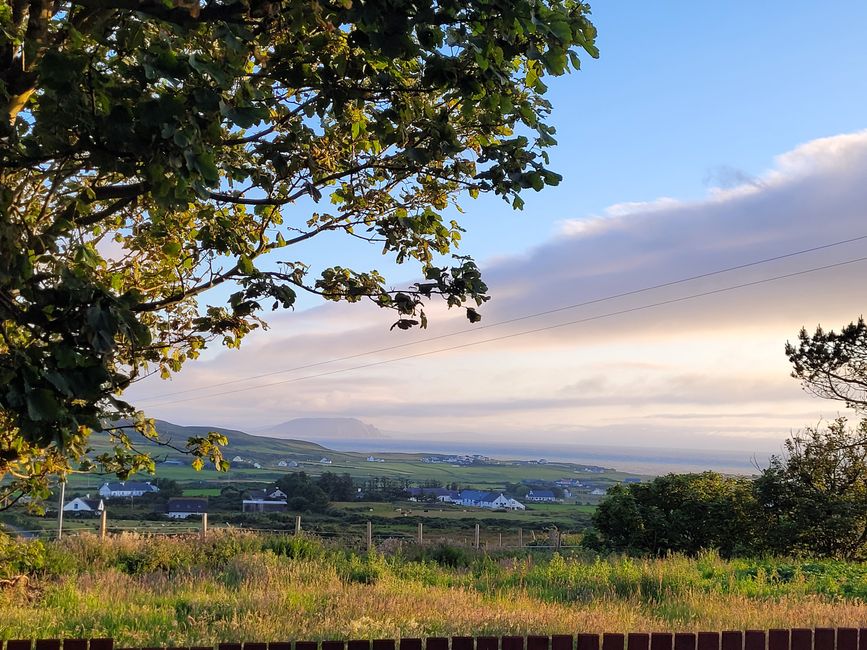
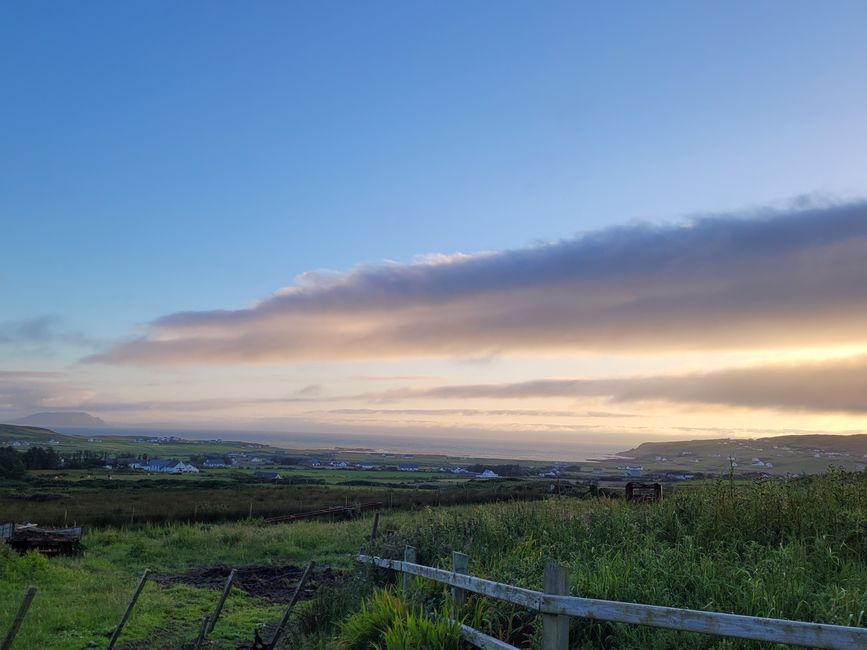
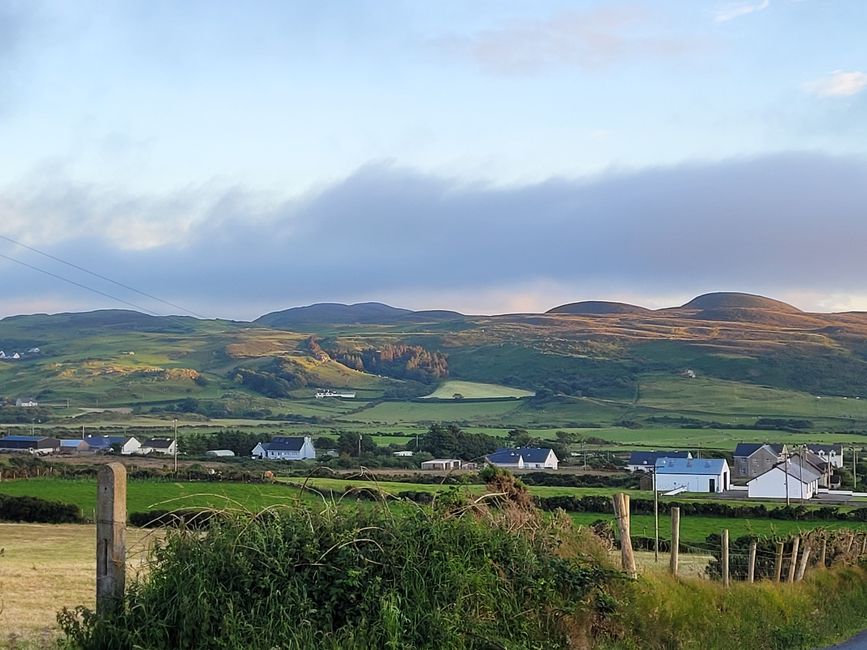
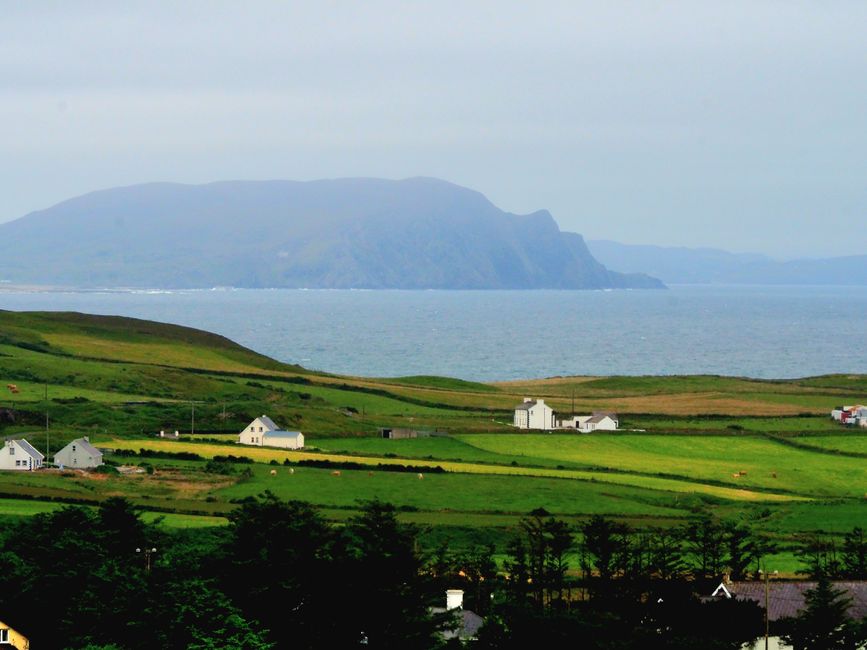
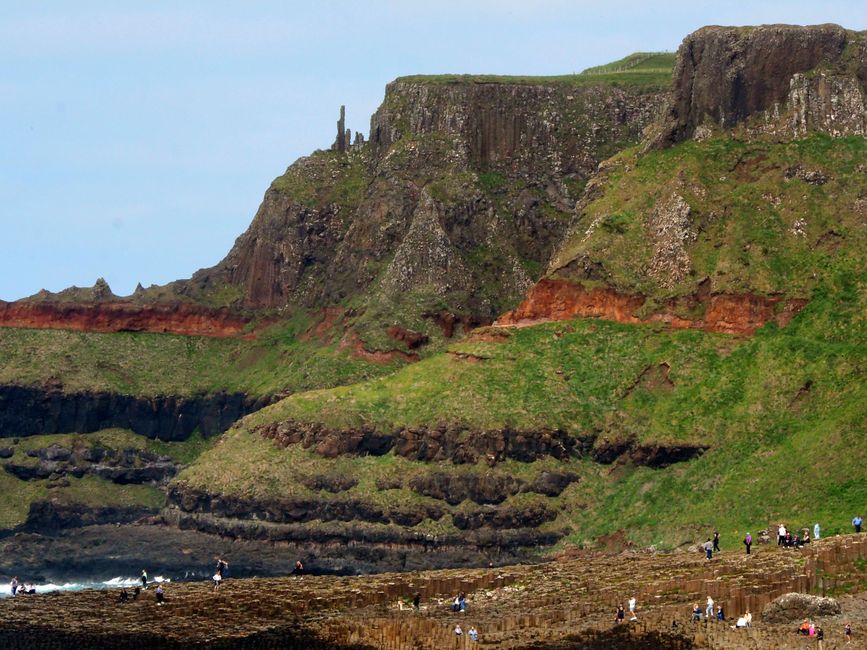
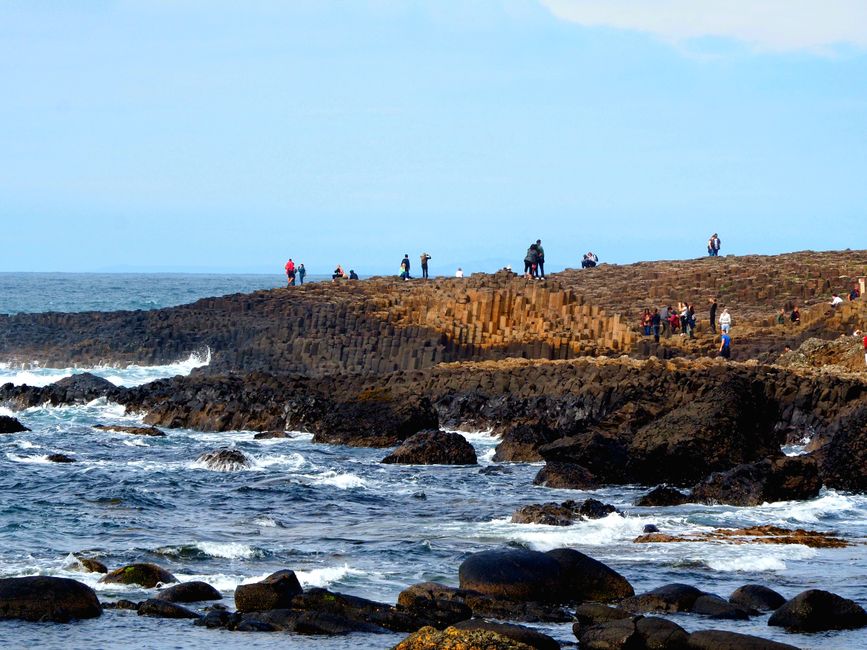
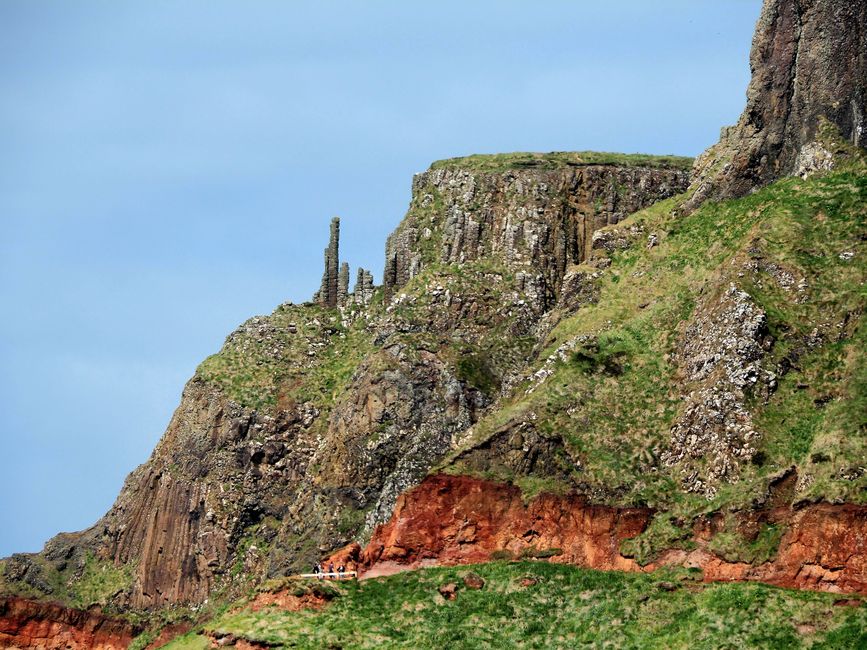
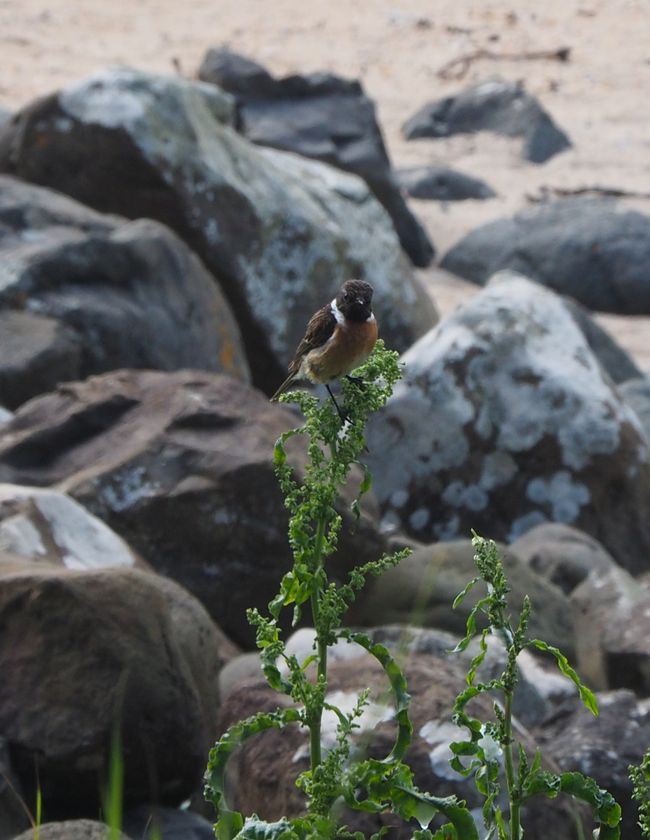
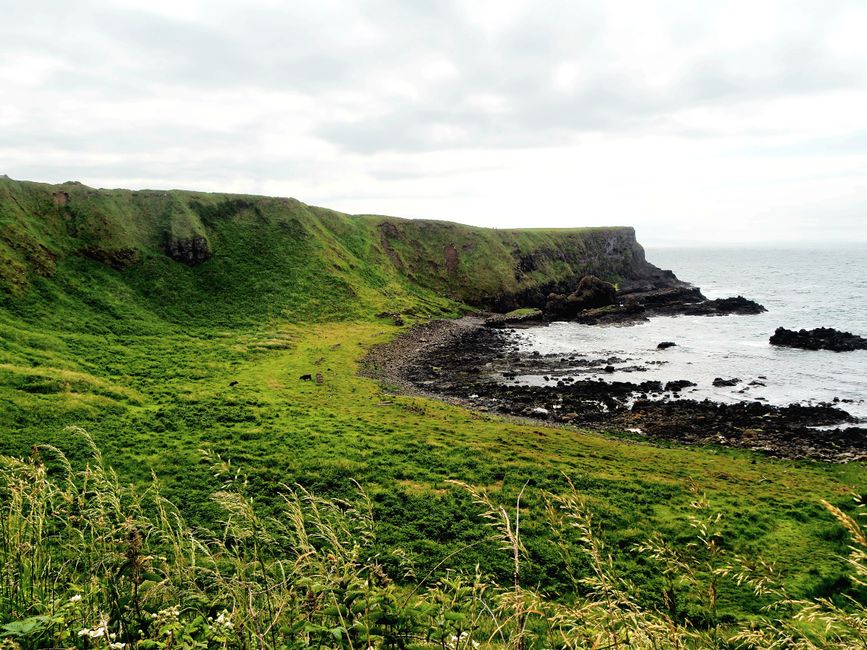
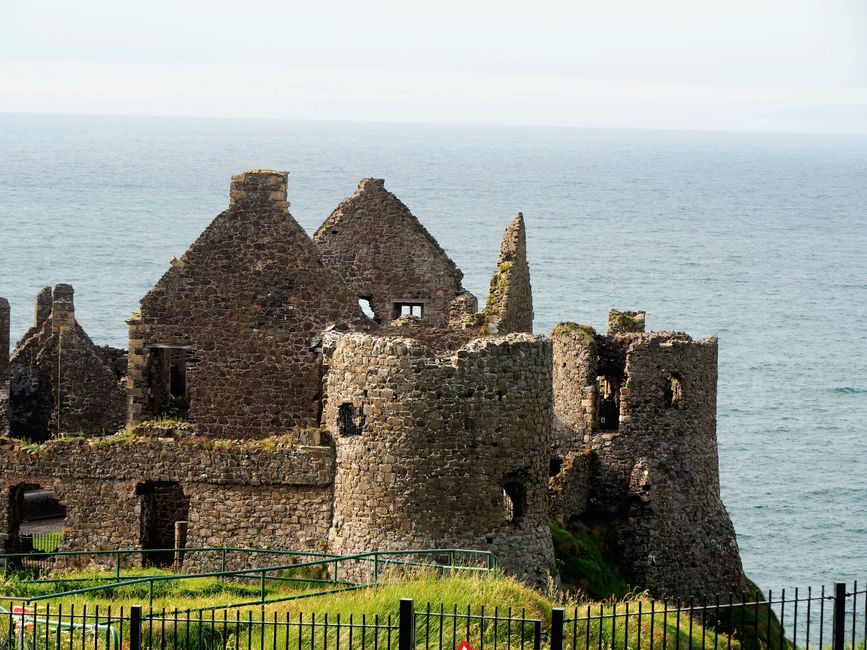
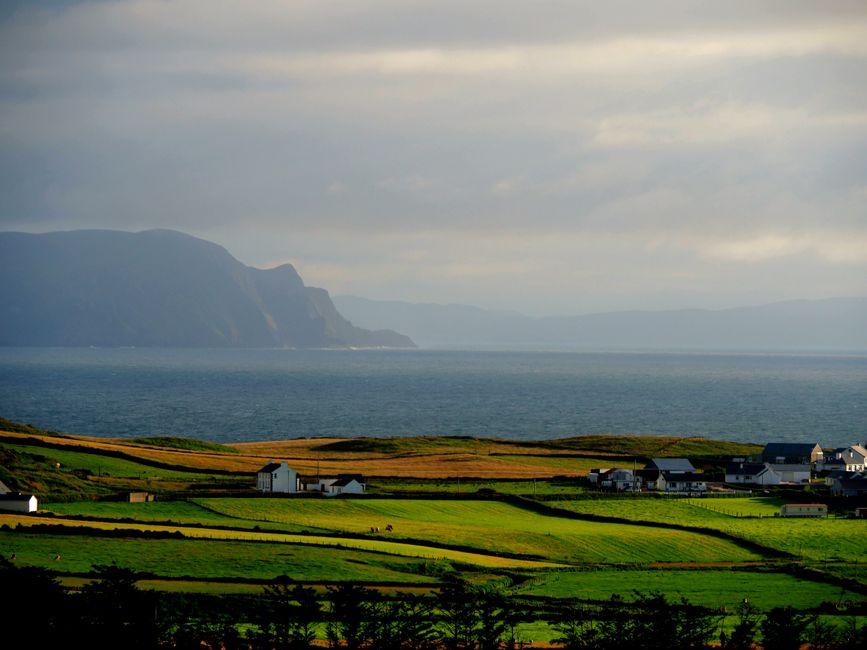
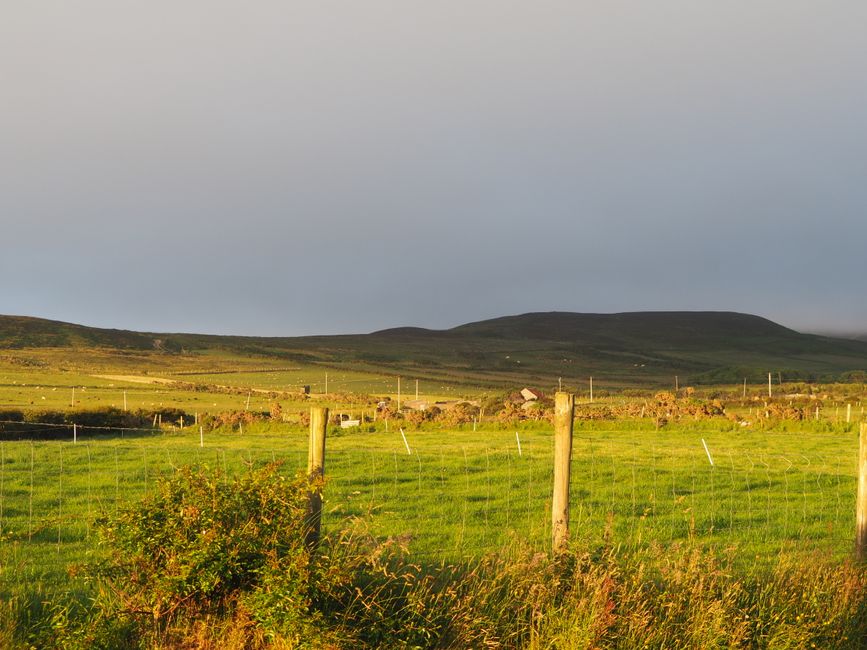
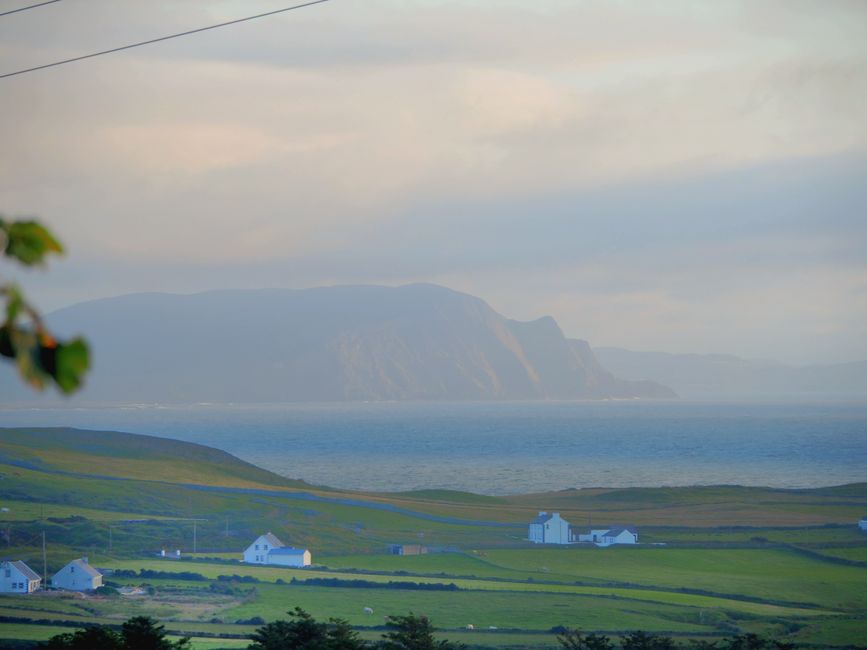
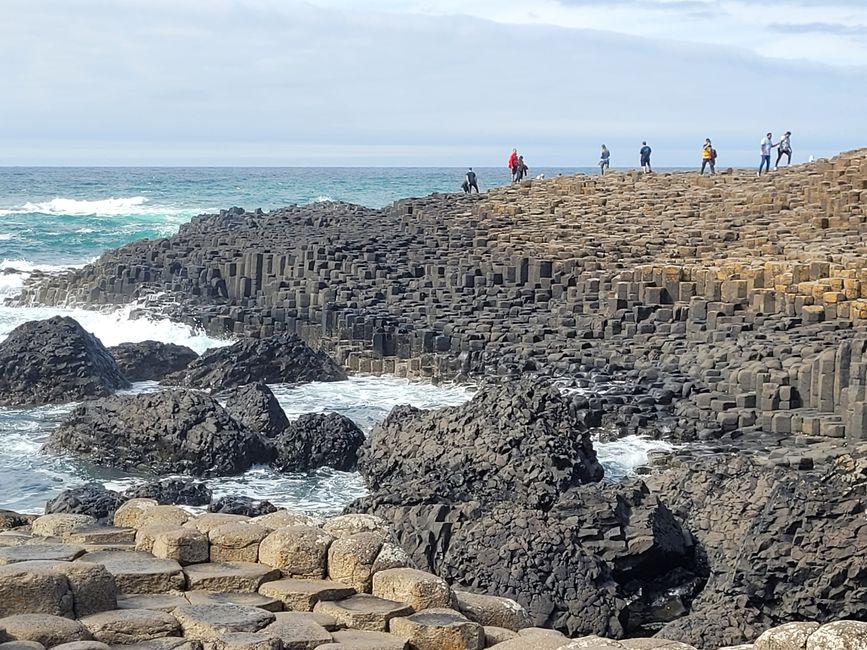
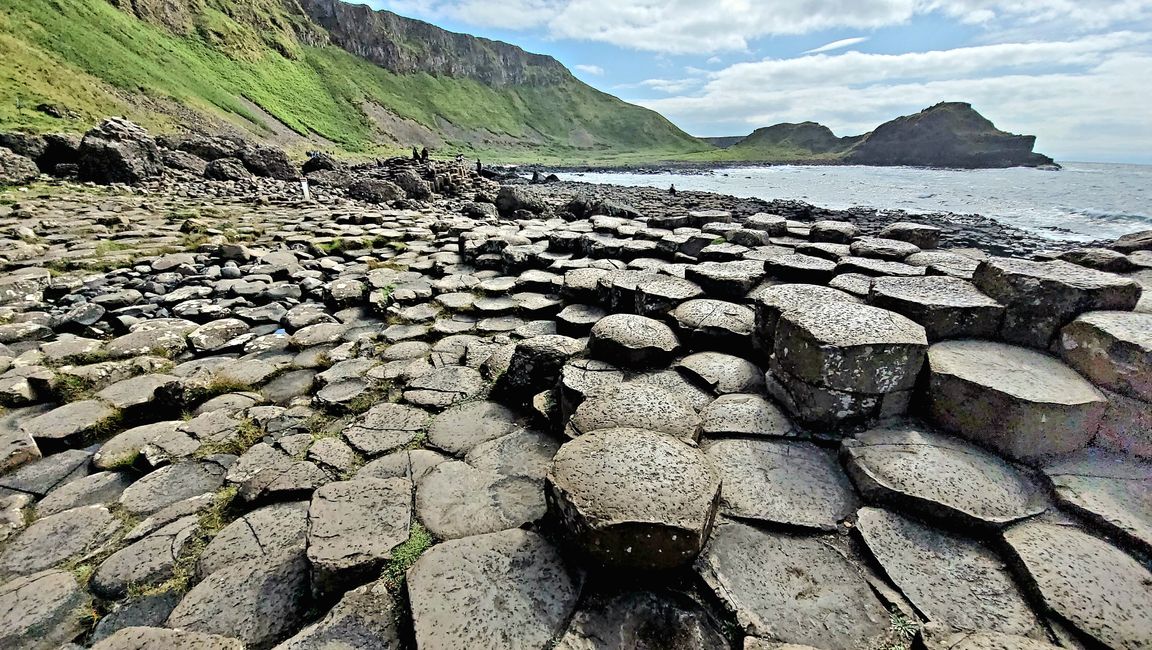
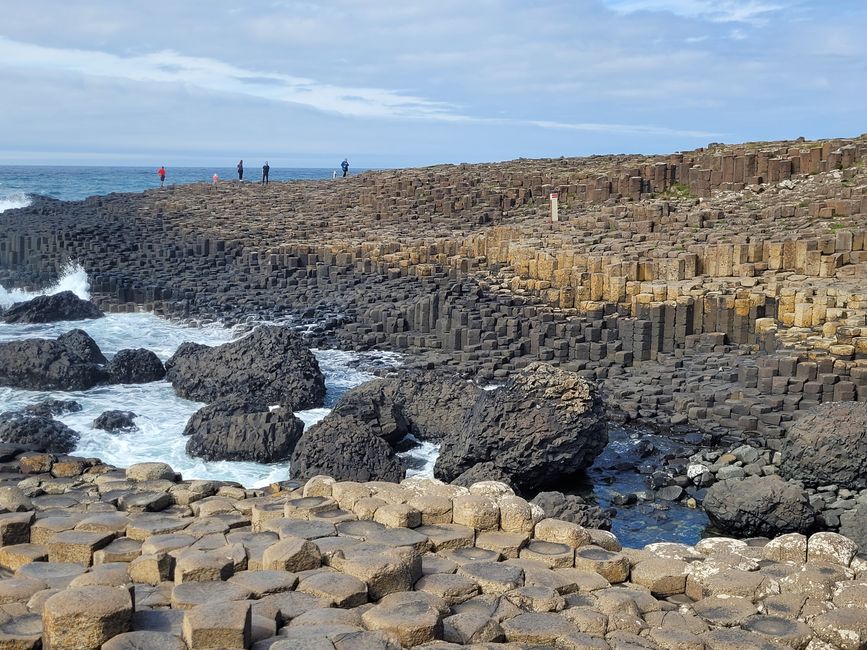
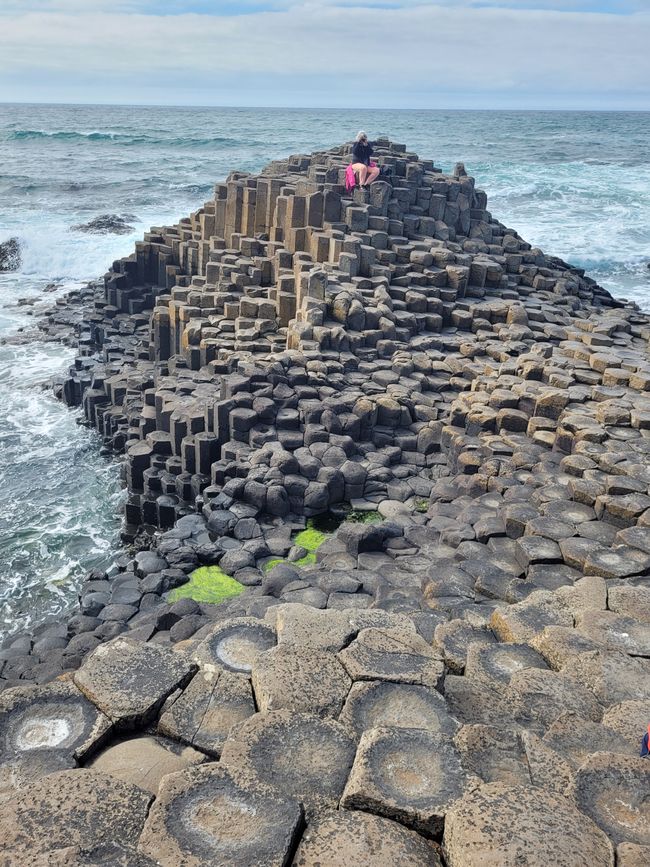
Iscriviti alla Newsletter
22.06.22
The Five Finger Strand in Malin Head
The day starts wonderfully lazy with tea, newspaper, and in pajamas.
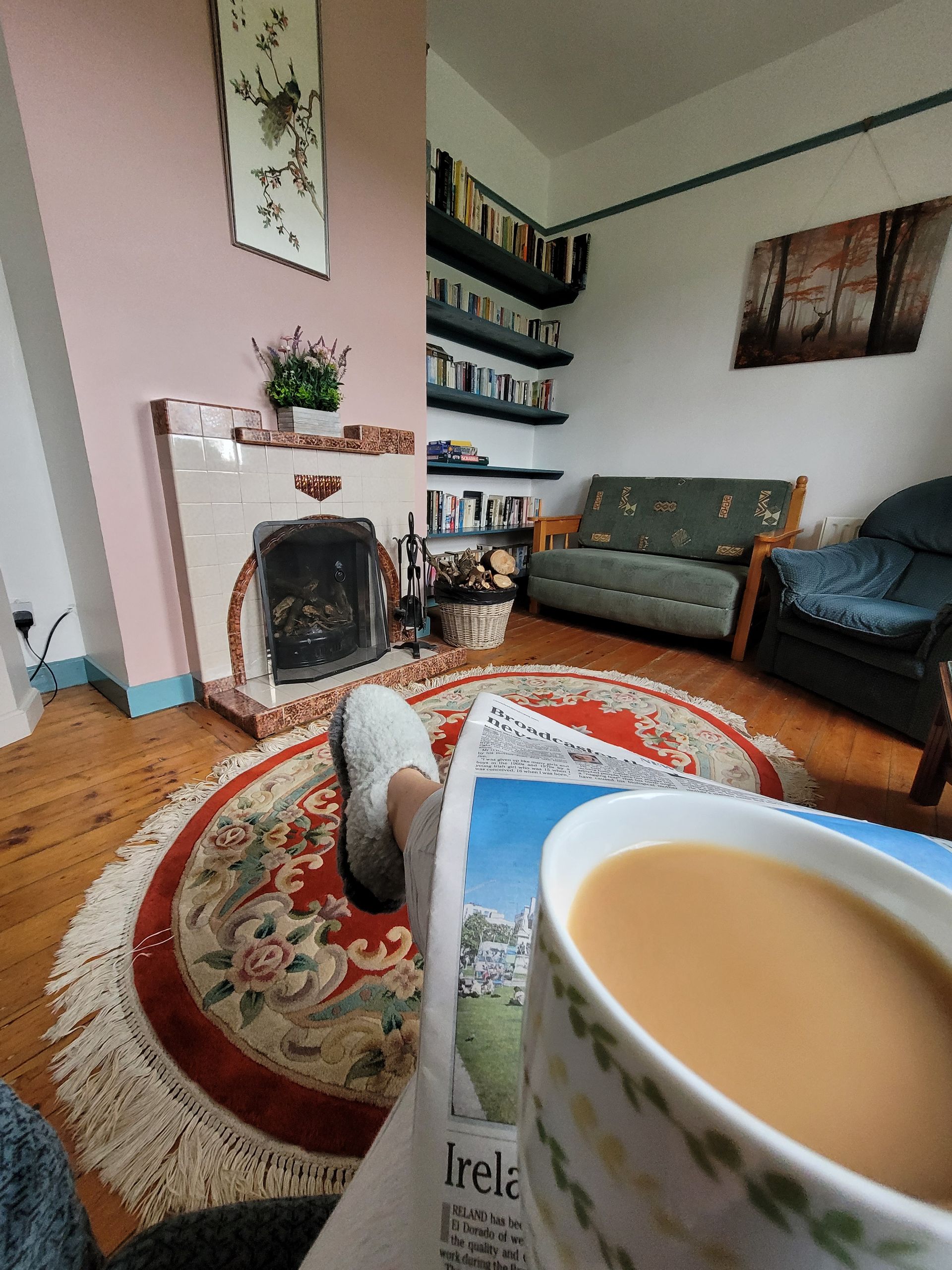
The view from our elevated house on the coast is initially rather gloomy.
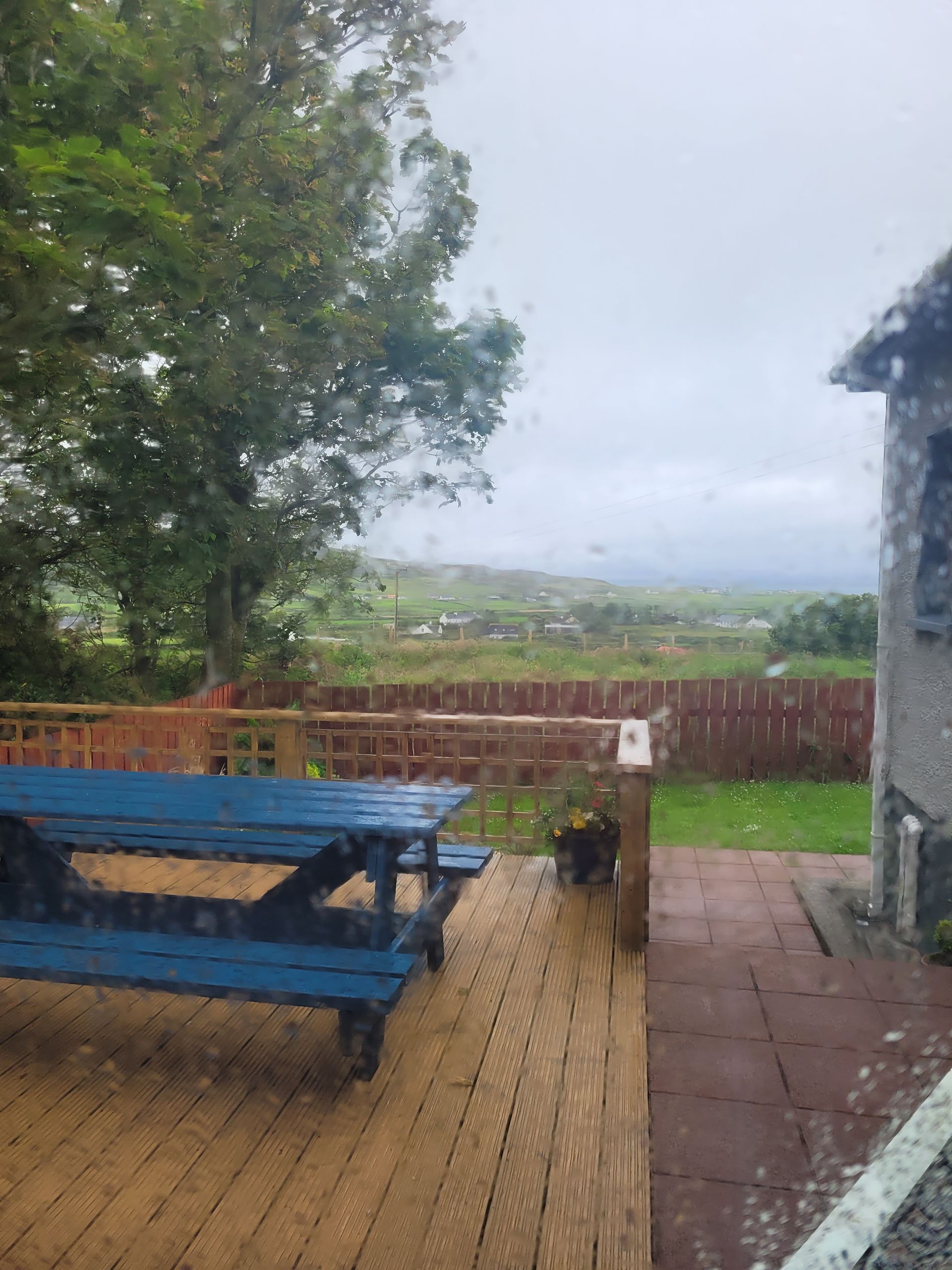
We have breakfast around 11am. The weather is grey and cool. We want to drive to Greencastle in the east of the Inishmore Peninsula, where we are. There is a small car ferry across the Lough Foyle, which is actually more of a tributary of the Atlantic than a lake. We want to check out the ferry as we plan to take it tomorrow to go to Northern Ireland and visit the Giants Causeway.

On the way, we stop at the Five Finger Strand. Two currents meet here, swimming is always prohibited. Behind us are dunes up to 30m high, which are among the highest dunes in Europe with these dimensions.
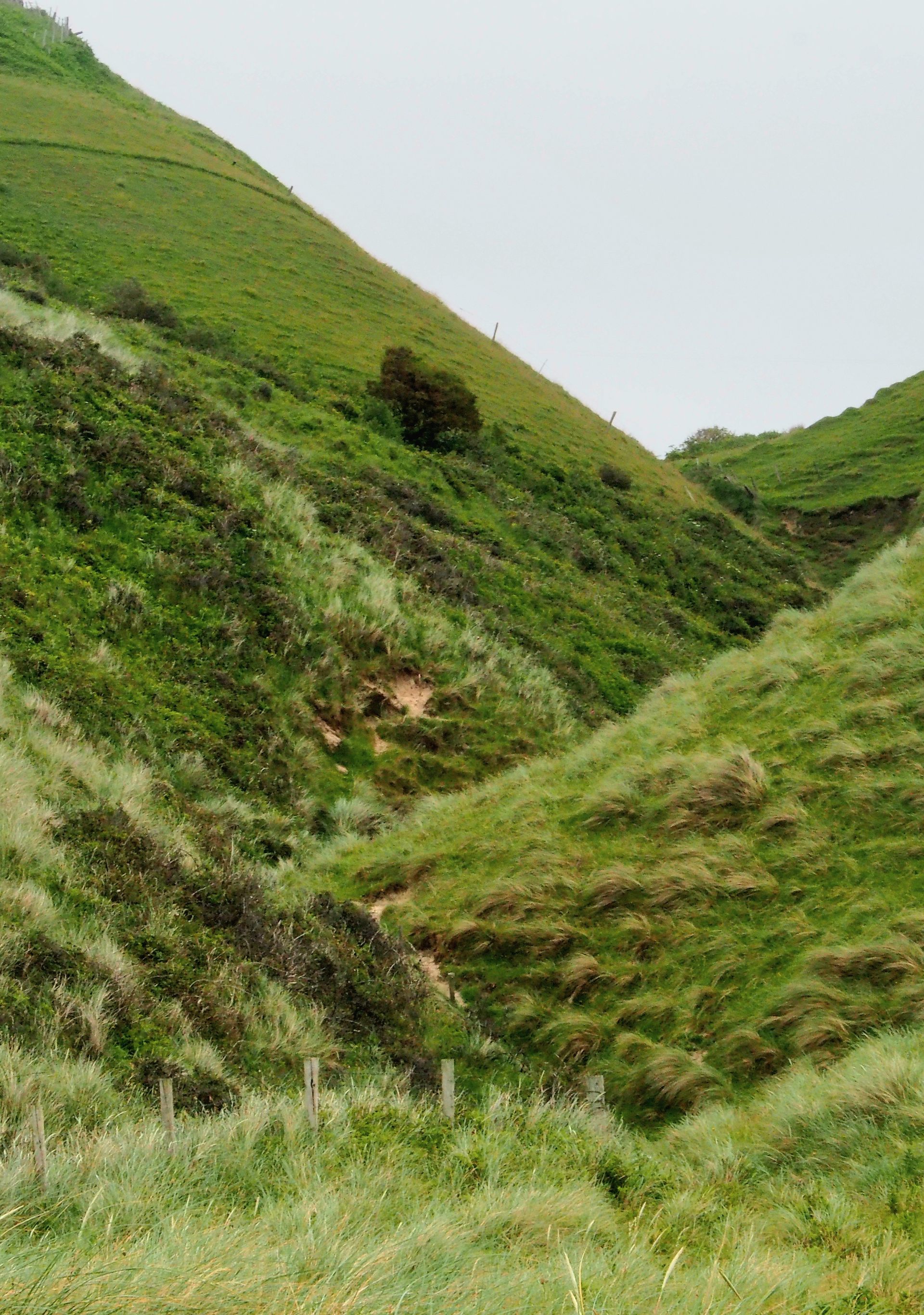
The wind is blowing so cold around our ears that it's impossible to go without a hat and jacket. After taking a few photos, we continue our journey.
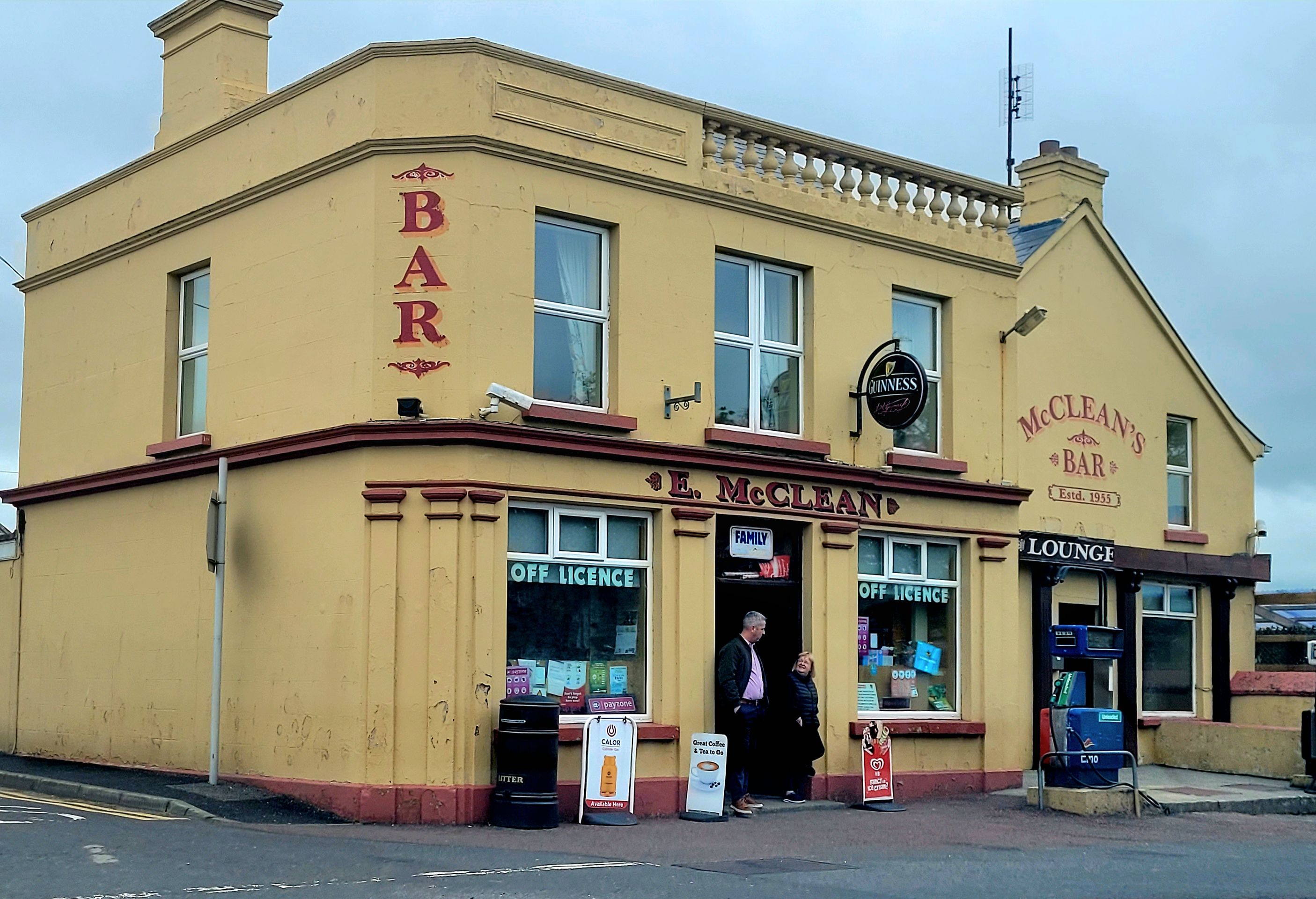
With the Ferry to Northern Ireland
So we roll across the green island and when we arrive at the ferry, it seems to be leaving immediately. We decide spontaneously to drive to Northern Ireland and visit the Giants Causeway.
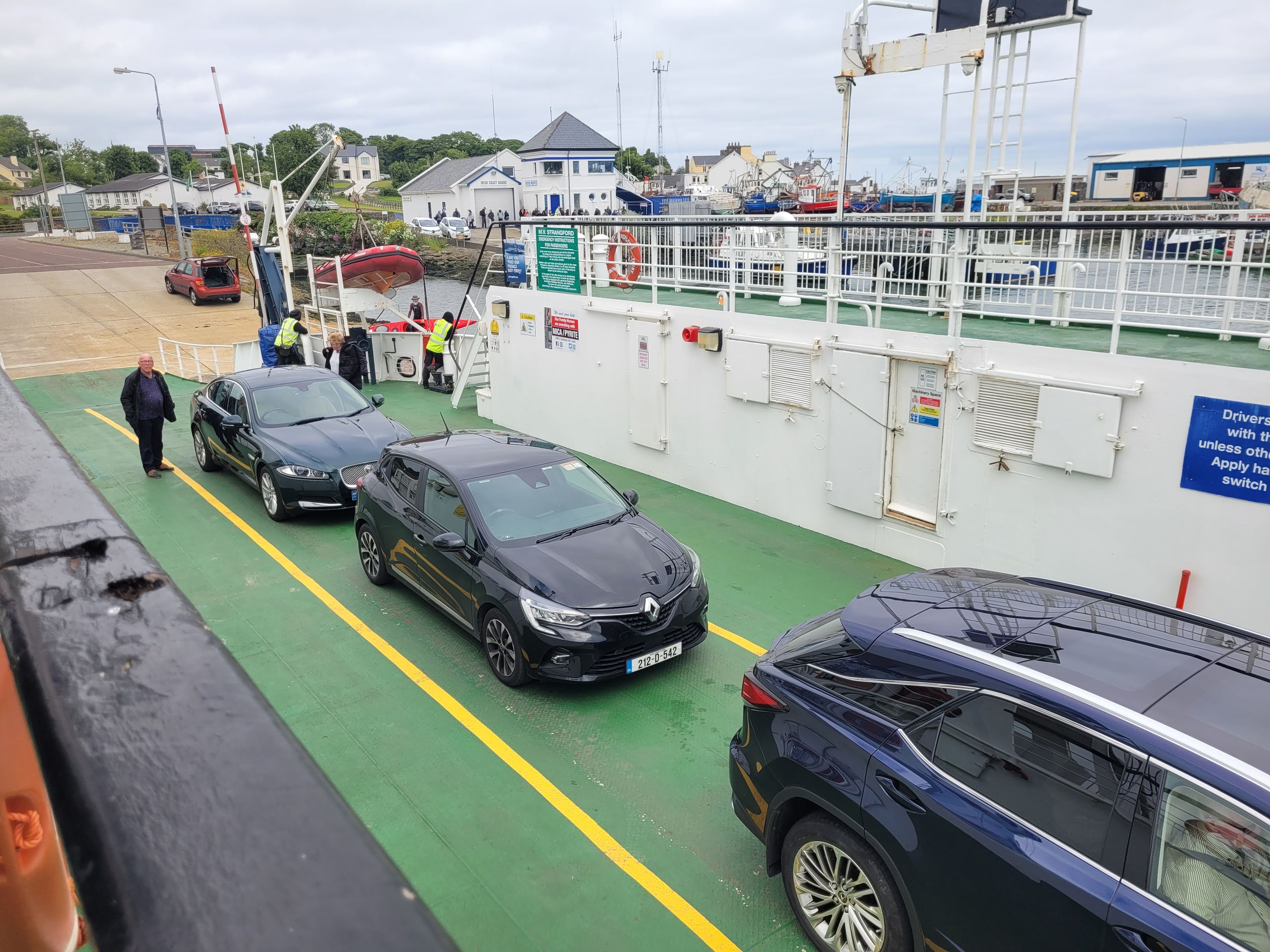
This is about a 45-minute drive from the other side.
The ferry costs 26 euros for round trip for 2 people plus a car.
The crossing takes about 15 minutes and we are back in Great Britain. No one checks IDs or anything.
We drive through small often British-flagged villages, I enjoy these typical terraced houses, which all look the same.
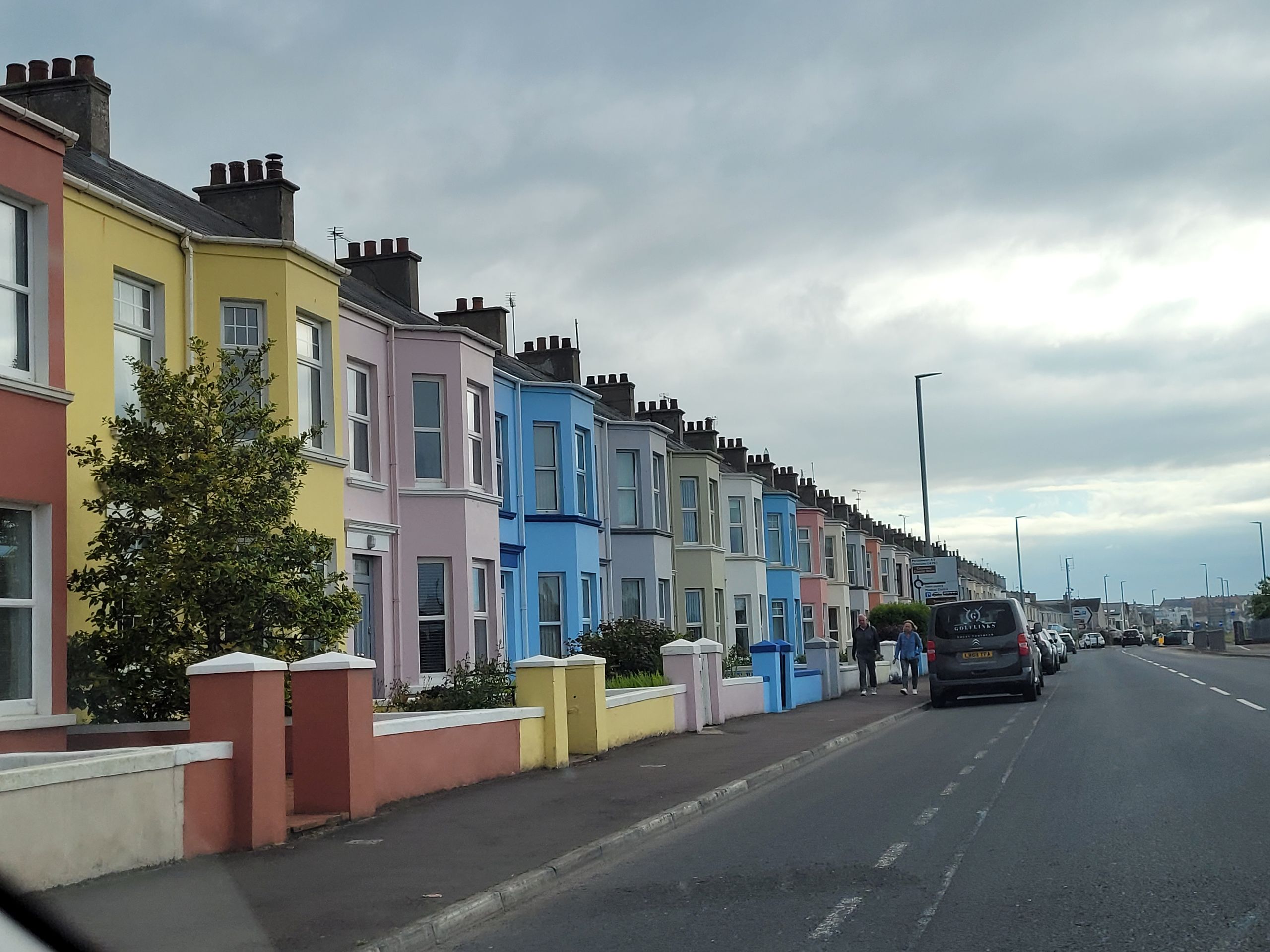
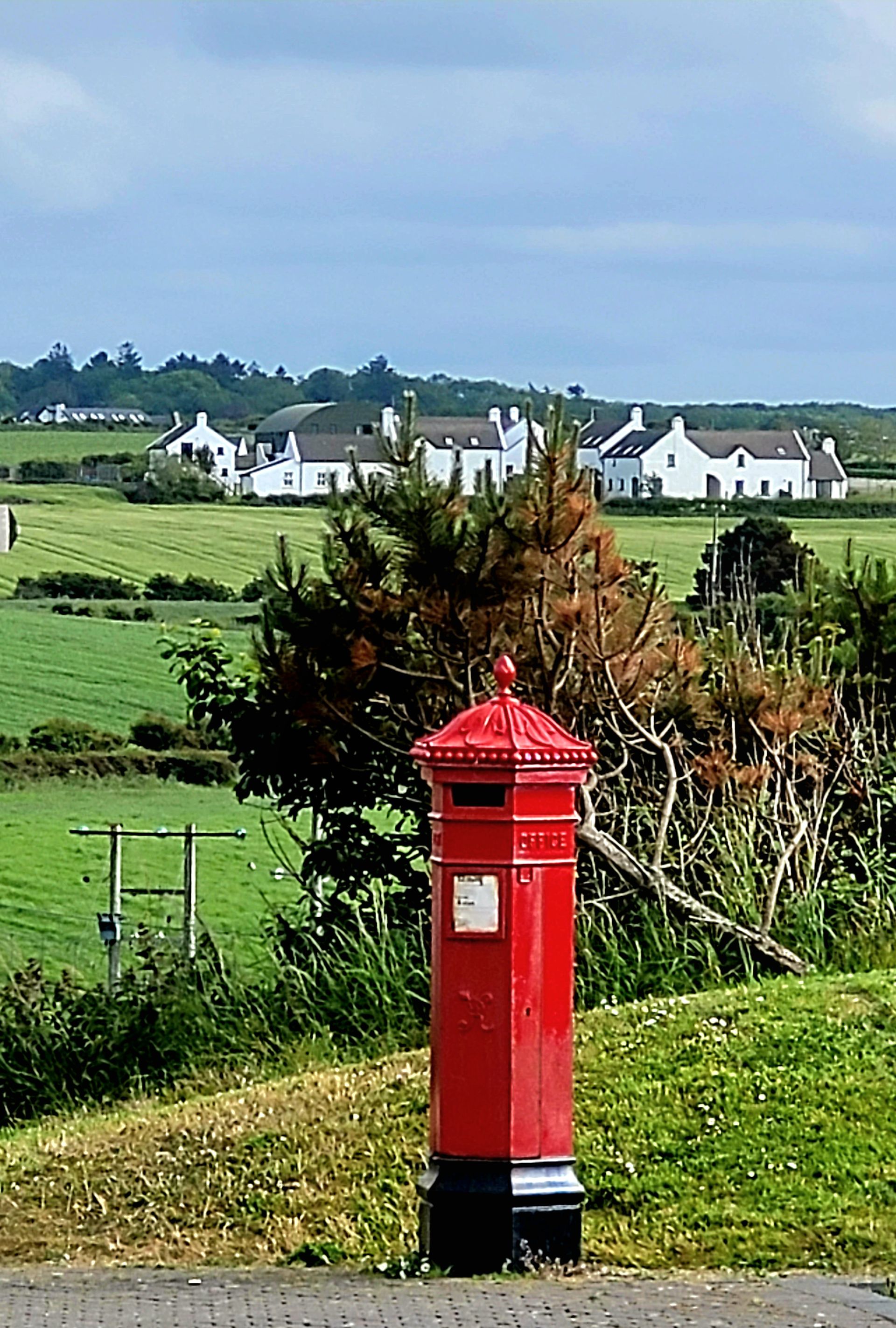
Giants Causeway
The Giants Causeway is part of the UNESCO World Heritage Site and describes a collection of basalt columns. The columns and stones found here, numbering in the thousands, are about 60 million years old. Half of them are hexagonal, while the others have a few more or fewer corners.
These columns (the tallest of which is about 12m high) are probably formed by slowly cooling lava.
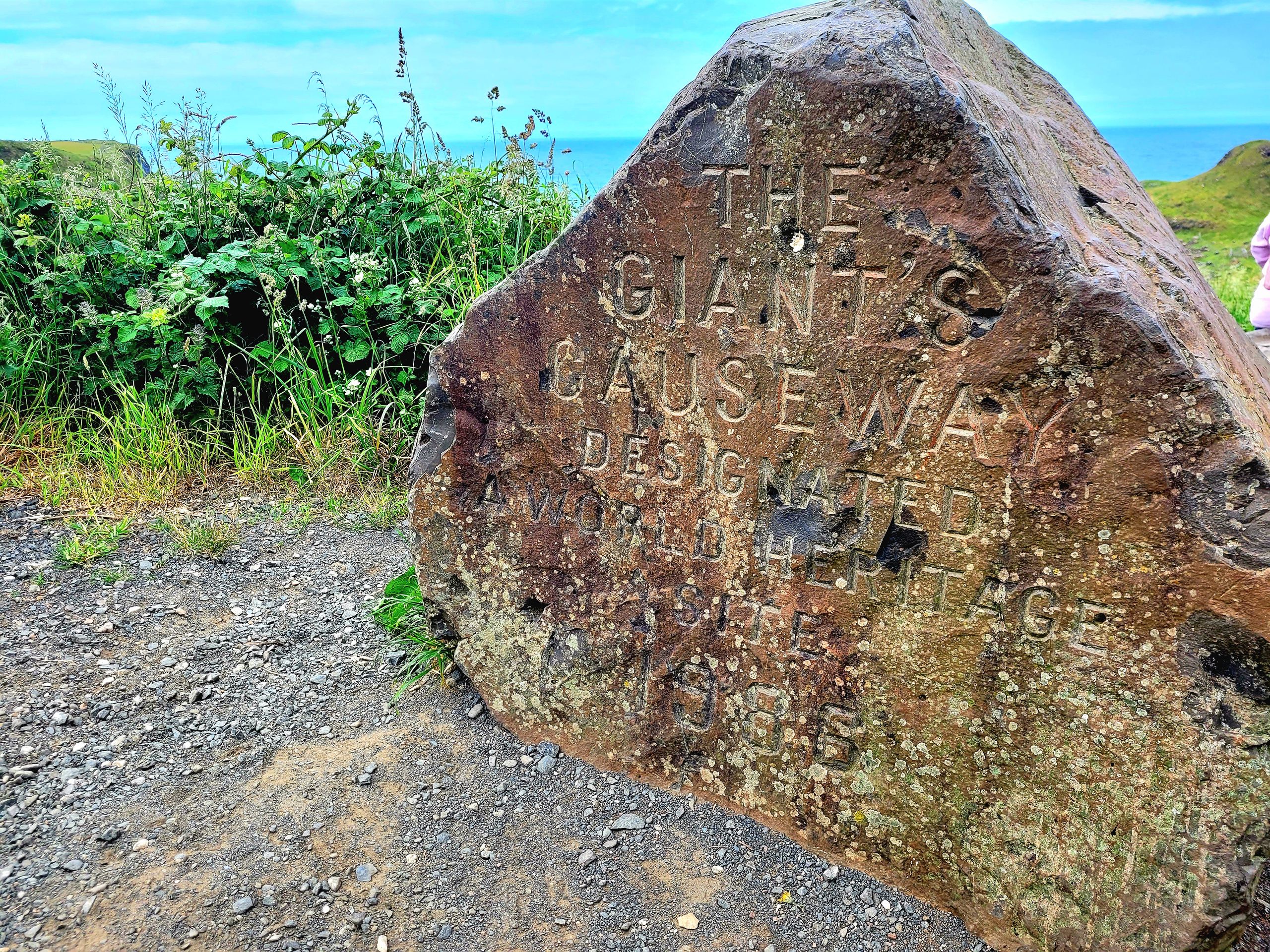
We climb and walk around on the stones, thrilled that the sun is shining right now, and spend almost 2 hours here.
Parking costs 10 pounds, which is still cheaper than 13 pounds per person if you want to visit the Visitor Center and benefit from an exhibition and audio guides. We have opted for the cheaper option, which is accompanied by a walk of another 1 km.
From the Visitor Center, you then walk about 25 minutes down.
The legend of the giant who was responsible for the construction of this area can be found extensively on Wikipedia. It is about the giant Fionn McCumhaill and his adversary Banandonner. In a confrontation, Fionn pulled rocks from the coast and slammed them into the sea to build a kind of wall for protection and at the same time to have a way to Scotland (!!). When Banandonner arrived for a confrontation, Fionn had disguised himself as a baby and his wife, along with the 'baby', stood before Banandonner. Given the size of the baby, the assumption was that its father must have even larger proportions, and Banandonner fled to Scotland and destroyed the rocks in the sea behind him.


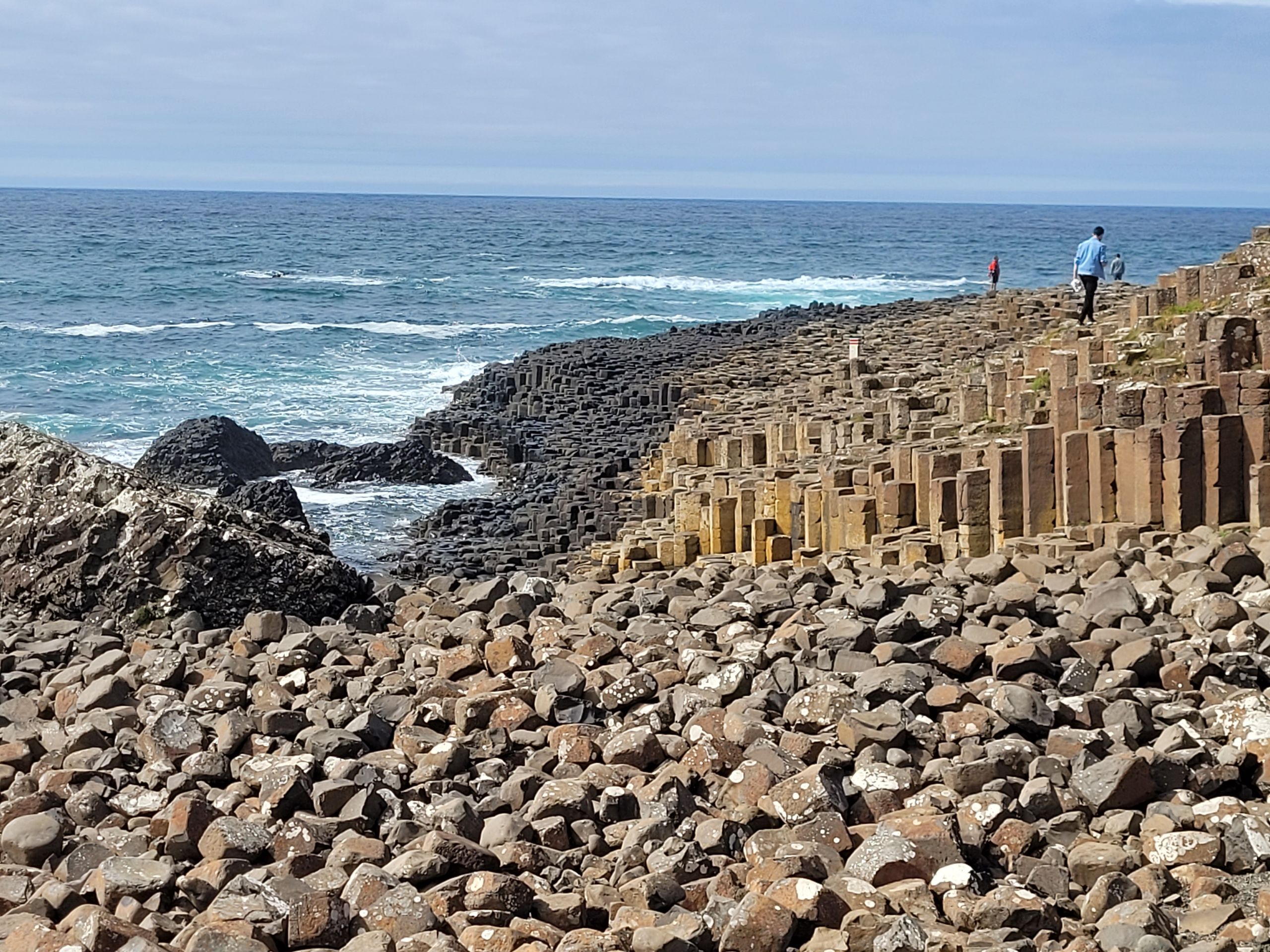
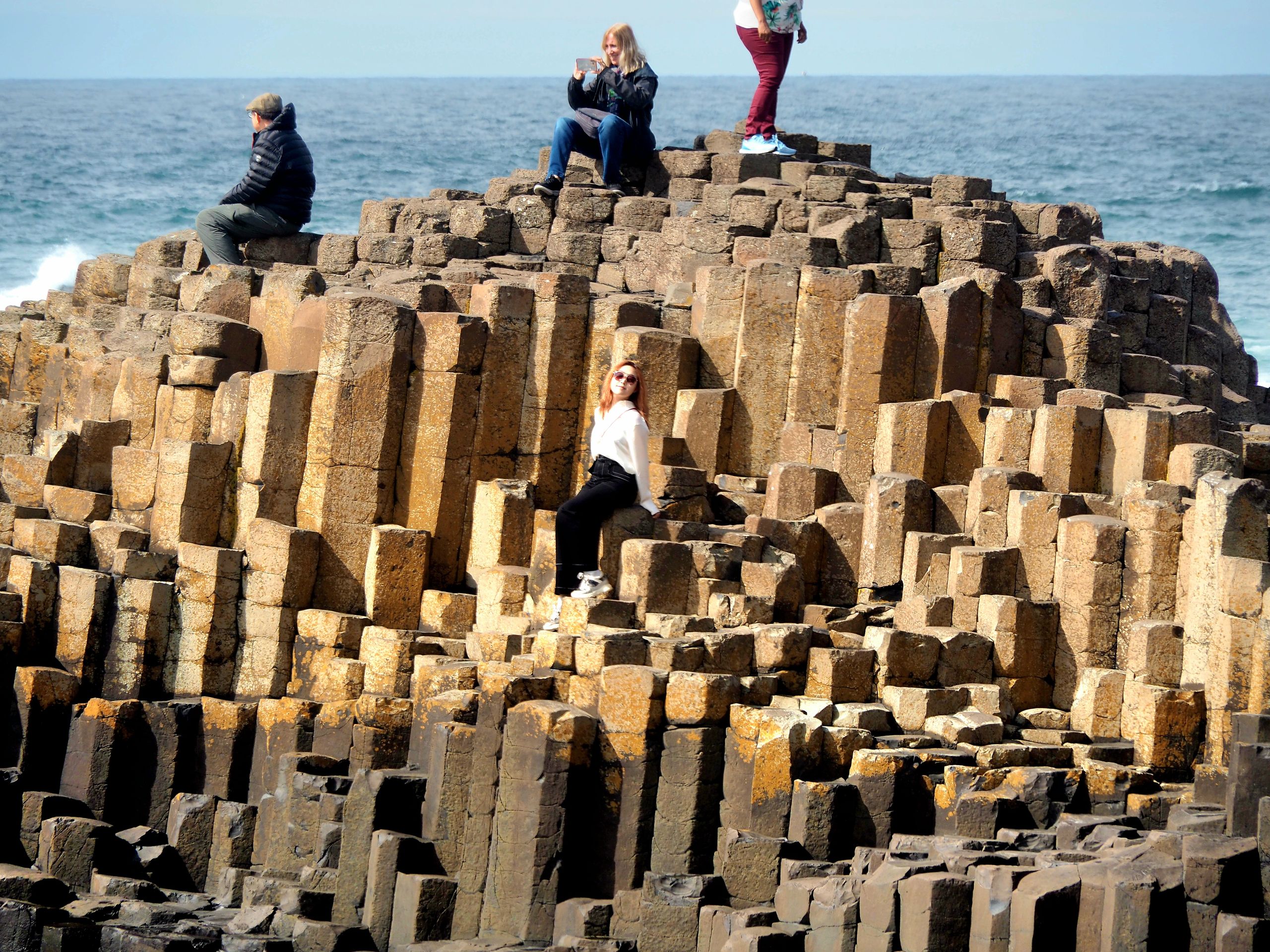

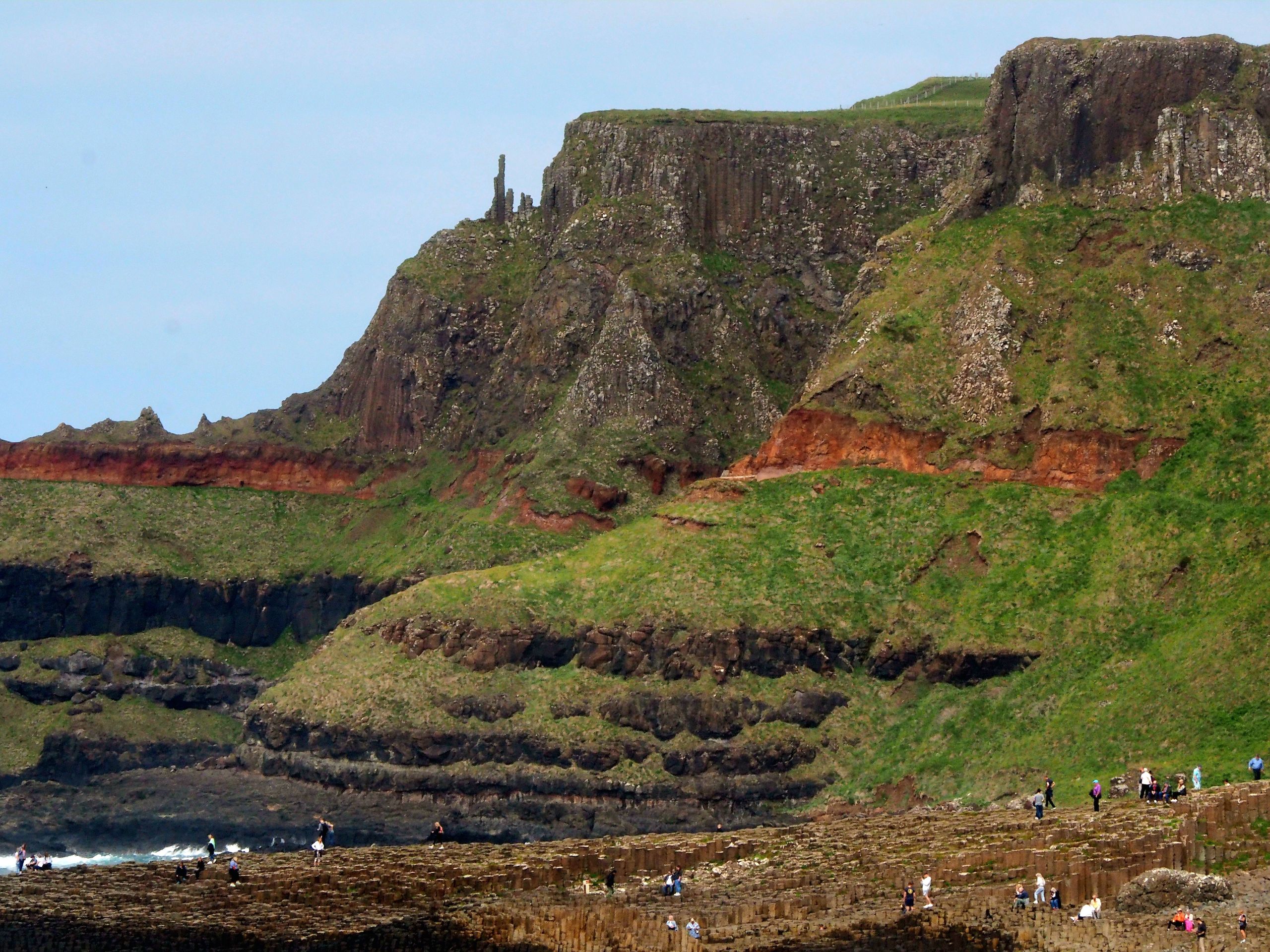
By chance, on the way back to the ferry, we pass the largest medieval castle ruin in Ireland, as we are driving along the coast road.
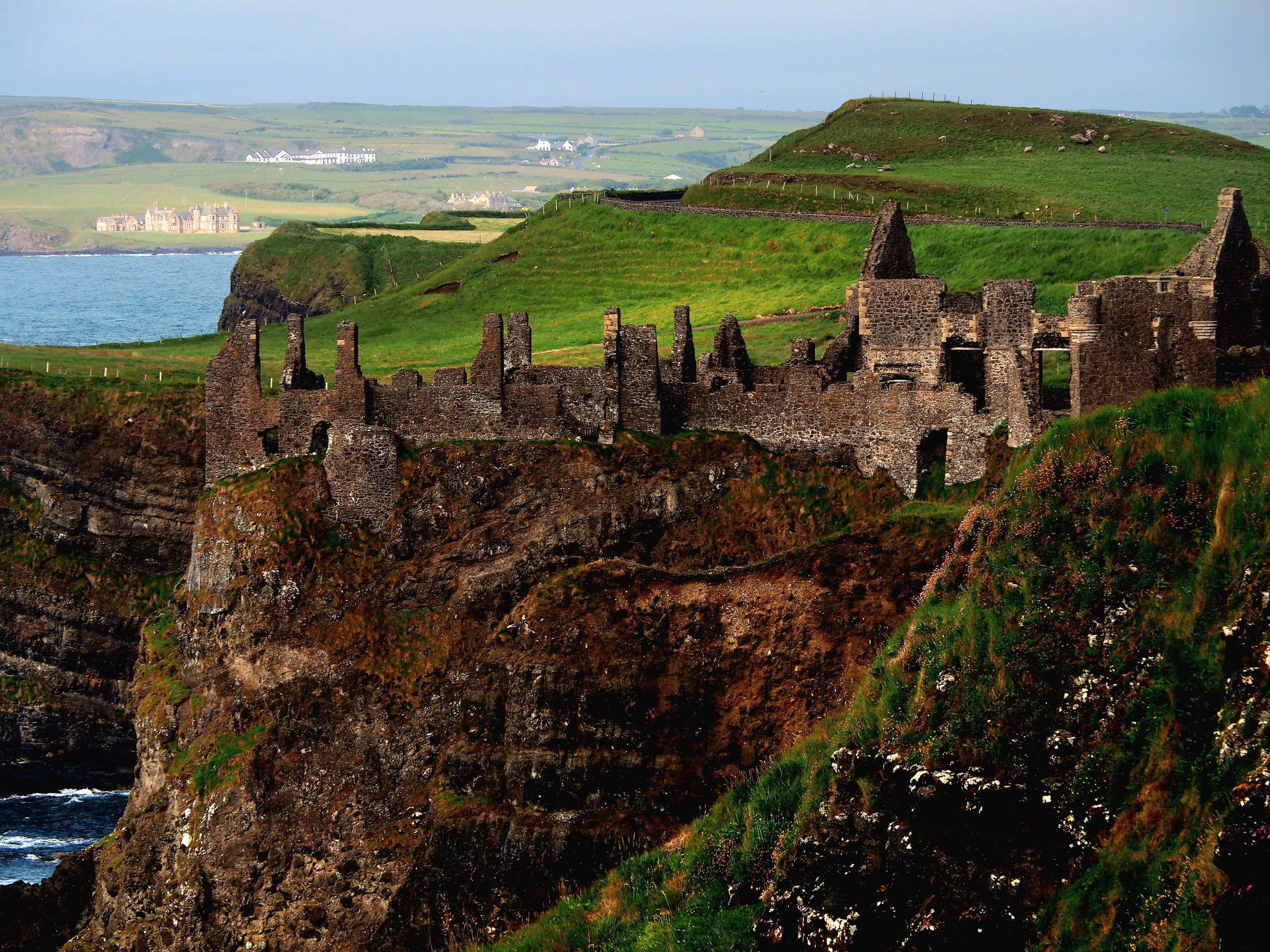
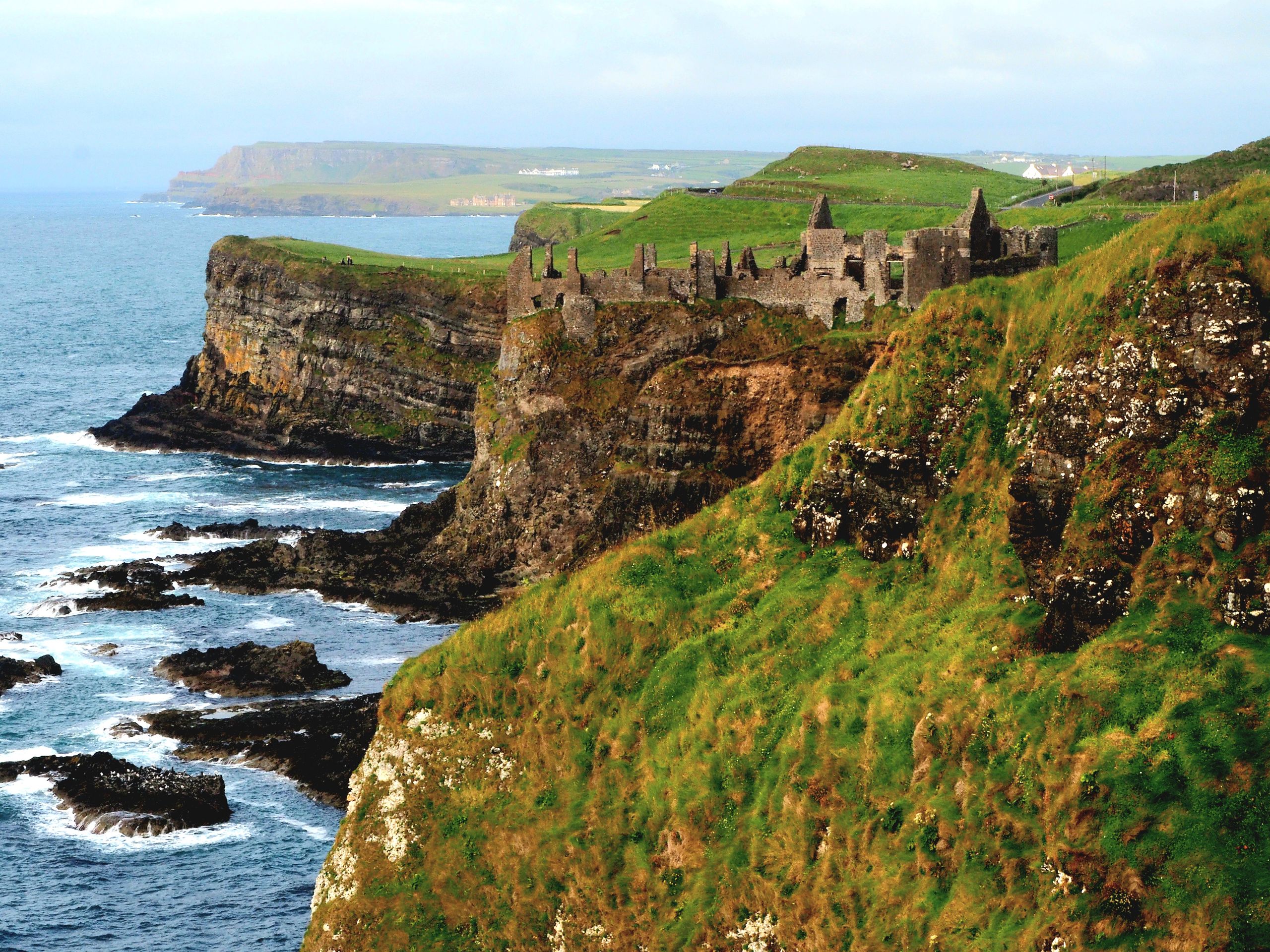

A visit is now only possible from the parking lot and the nearby viewpoint, as it is already after 5pm.
The castle towers on a 39m high cliff and was abandoned in the mid-17th century after the kitchen and staff had slid down. Another tradition says that the castle owners found the sound of the sea too loud.
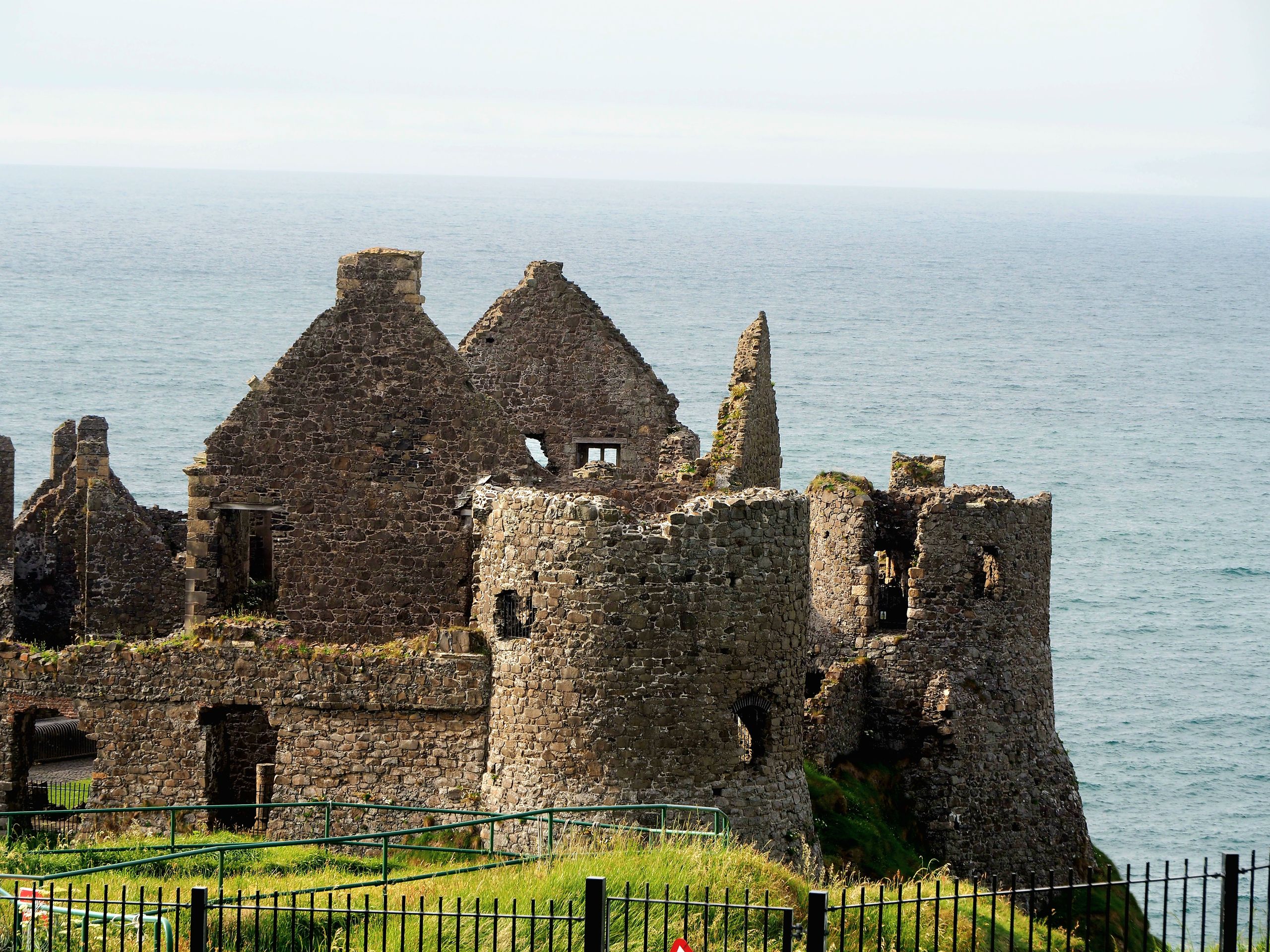
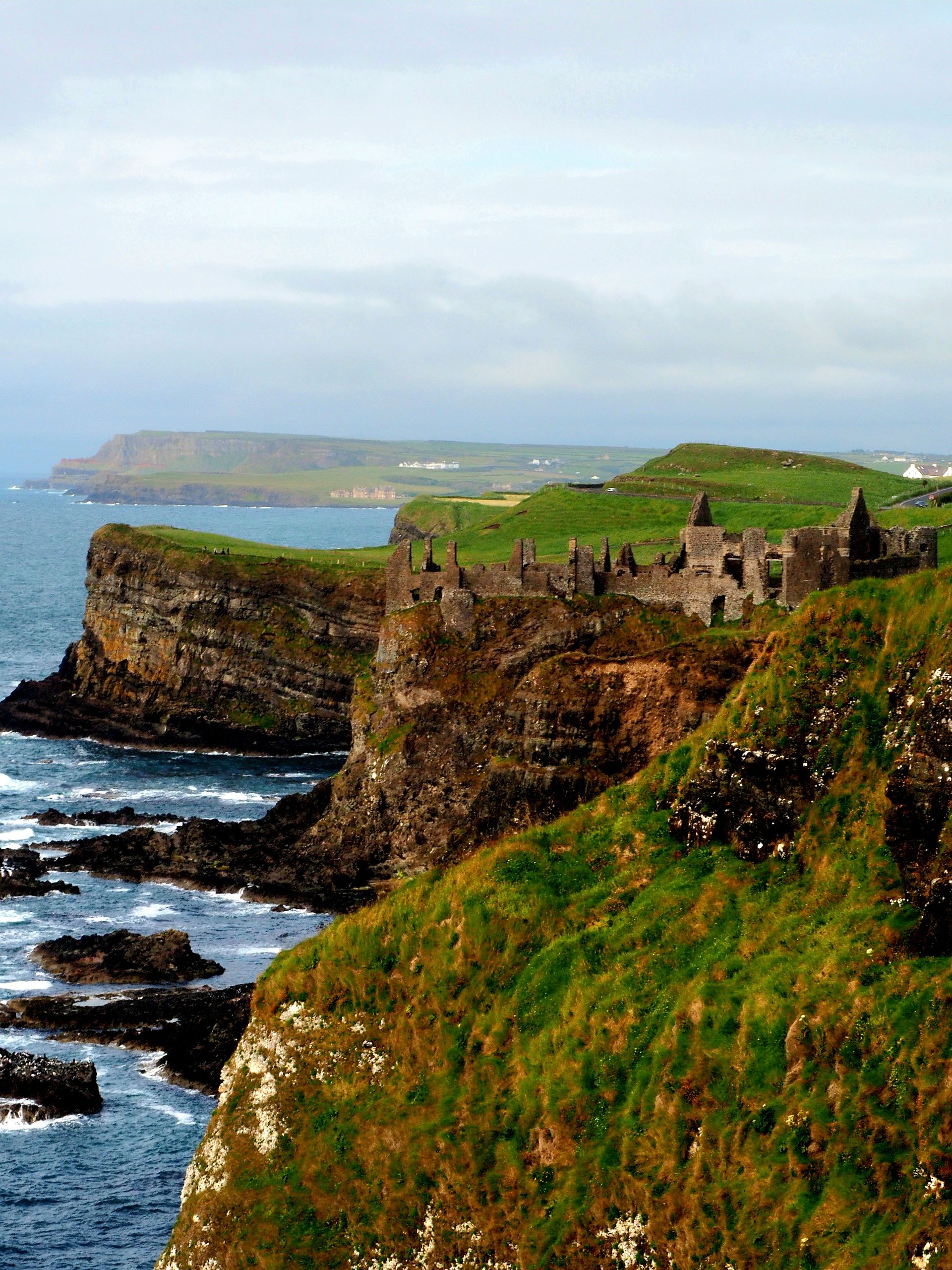
Back in Malin Head, we enjoy a wonderful evening atmosphere, but we are too tired to drive to the proper Malin Head View Point now, as the weather can change so quickly here that everything might be covered again in 10 minutes. Tonight we have instant soup, which unfortunately doesn't taste very good, and some leftover bread and cheese.
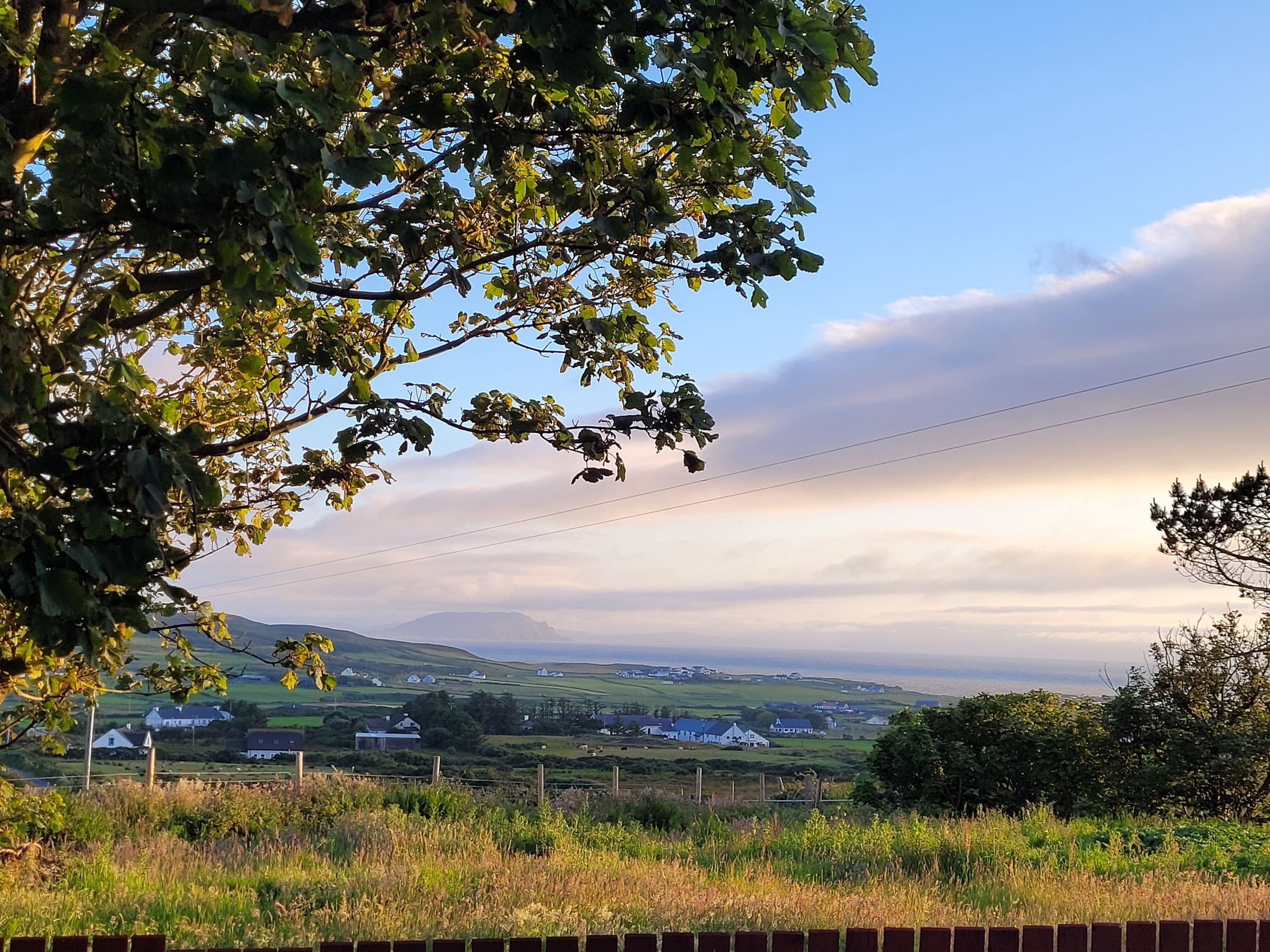
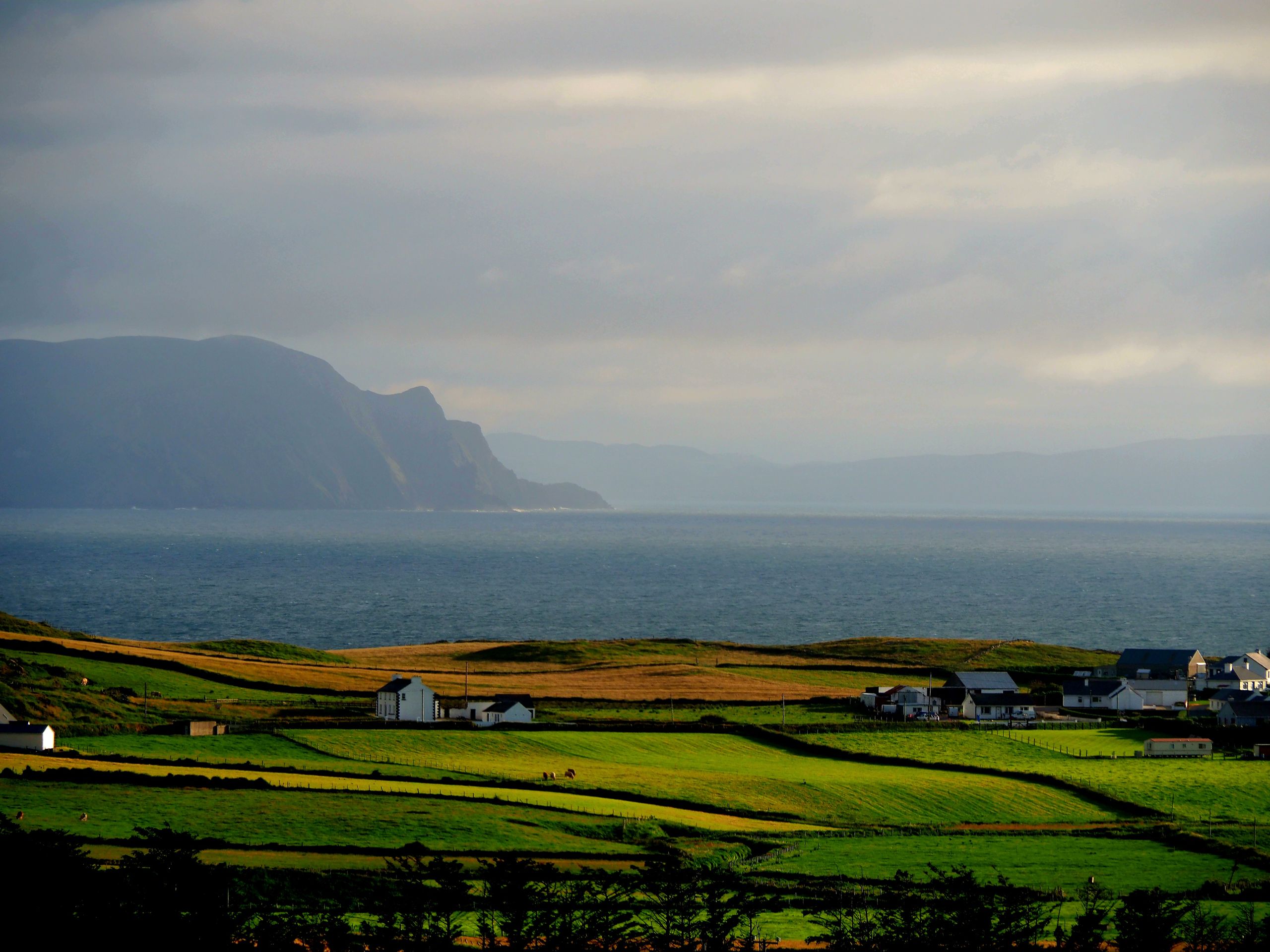
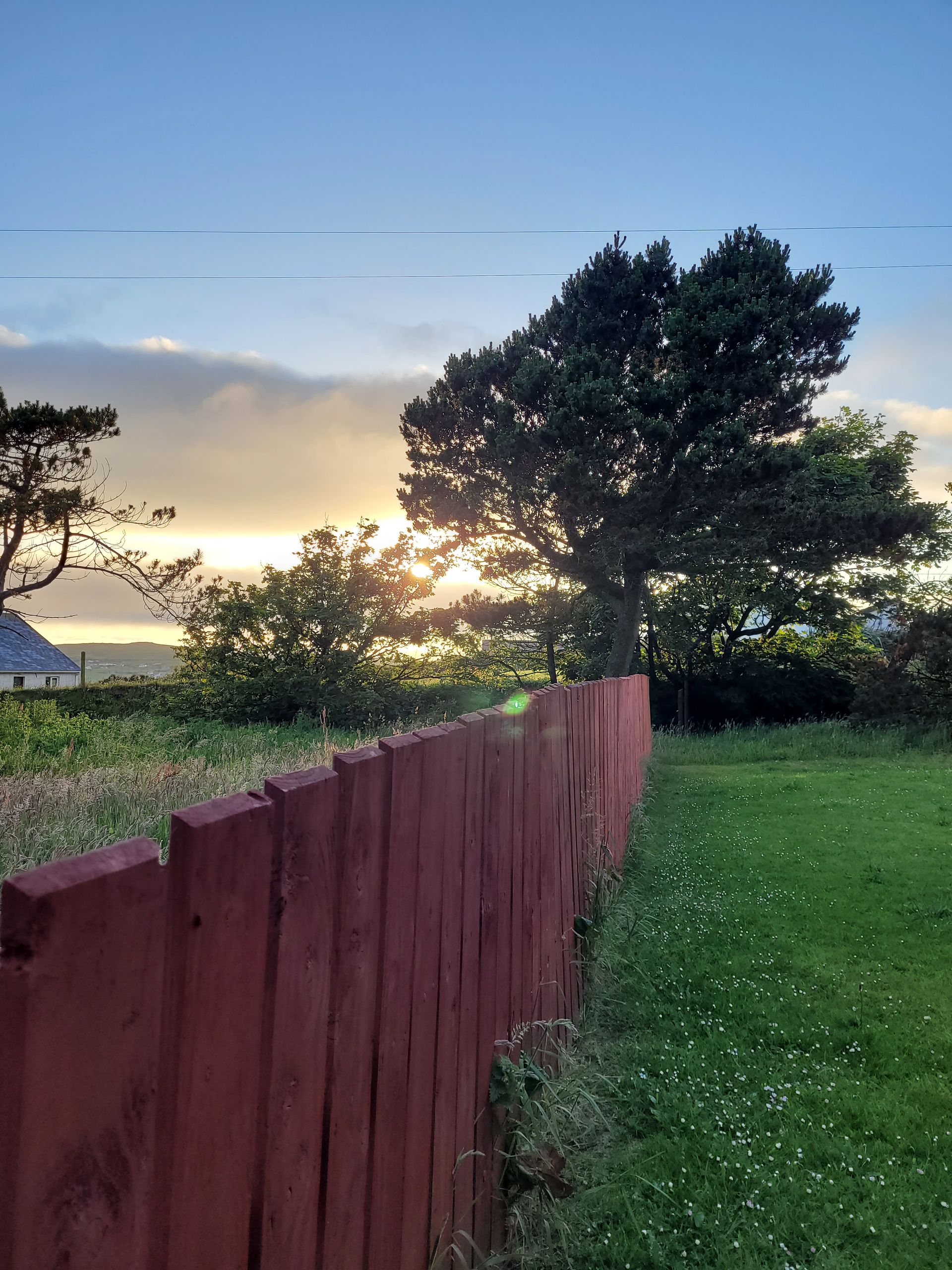
Iscriviti alla Newsletter
Risposta
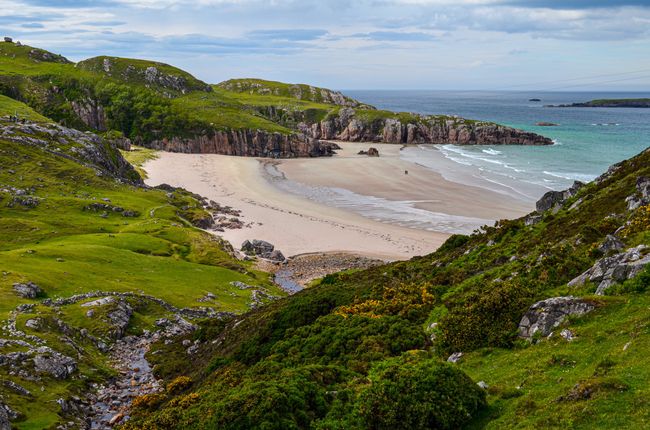
Rapporti di viaggio Regno Unito
